A strategic shift in our social media presence

After a thorough review, we have made the decision to discontinue posting to our X account with immediate effect.
As an organisation dedicated to supporting LGBTI activist organisations in Europe and Central Asia, and advocating on behalf of the LGBTI movement, at ILGA-Europe we value the role social media can play in cultivating connection, raising awareness, and driving positive change. At the same time, we are mindful of growing concerns about the increasingly divisive nature of certain platforms, including X, and the challenges this poses for creating safe and impactful spaces for engagement.
Every organisation must carefully evaluate its social media strategy, balancing its mission with the evolving dynamics of digital platforms. After a thorough review, we have made the decision to discontinue posting to our X account with immediate effect. This was not an easy choice, but it reflects our commitment to adapting our approach in ways that best serve our members, mission, and values.
Why We’re Making This Change
We are committed to fostering meaningful conversations while not contributing to hateful narratives. We also take seriously our responsibility to create inclusive, supportive spaces. The rise of harmful content and inconsistent content moderation on X raised concerns about whether the platform aligns with our values and the needs of the LGBTI activists and communities we serve. Coupled with a significant decline in engagement and growing toxicity for our communities, we’ve found that our campaigns achieve greater impact on platforms like LinkedIn and Instagram, where there is more space for thoughtful discussions and meaningful connections.
What We Will Be Doing
As part of this strategic decision, we will be investing in a social media strategy, as part of a broader communications strategy that better aligns with our goals. We will focus on platforms like LinkedIn, Instagram and other new channels, including TikTok, Bluesky and Threads, where we can amplify nuanced messages, foster meaningful connections, and ensure safer, inclusive dialogue.
Listening, learning, and reflecting with our members and the movement will remain central to our approach as we navigate these changes together.
Staying Connected
We invite our online communities to continue engaging with us through our website, newsletter, and other platforms where we can share insights, updates, and opportunities to collaborate. Our X account will feature a pinned post explaining this change and guiding people to our other channels.
As we adapt to the evolving digital landscape, we reaffirm our commitment to creating a world where the human rights of LGBTI people are amplified, celebrated, and supported. Together, we will continue driving positive change, countering online hate, and amplifying the calls of the LGBTI movement across Europe and Central Asia.
- Keep our website in your bookmarks: https://www.ilga-europe.org/
- Subscribe to our monthly Rainbow Digest: https://www.ilga-europe.org/subscribe-to-our-newsletter/
- Follow us on Linkedin: https://www.linkedin.com/company/ilga-europe/
- Follow us on Instagram: https://instagram.com/ilgaeurope/
- Follow us on Facebook: https://www.facebook.com/ilgaeurope
- Follow us on TikTok: https://www.tiktok.com/@ilgaeurope
- Follow us on Bluesky: https://bsky.app/profile/ilgaeurope.bsky.social
- Follow us on Threads: https://www.threads.net/@ilgaeurope
- Listen to our podcasts, The Frontline: https://smartlink.ausha.co/the-frontline
Joint statement on today’s long-awaited judgment from the European Court of Human Rights on violations of LGBTI human rights in Armenia

ILGA-Europe and TGEU celebrate the judgement of the European Court of Human Rights in the case of Minasyan and Others v. Armenia, upholding the rights of victims of homophobic and transphobic hate speech.
Today, the European Court of Human Rights issued a judgement in the case of Minasyan and Others v. Armenia. The case was brought forward by 14 Armenian human rights defenders and activists who supported and/or belonged to the LGBTI community and were victims of homophobic and transphobic hate speech. The Court found a violation of Article 8 of the European Convention on Human Rights (right to private and family life), taken alone and in conjunction with Article 14 of the Convention (prohibition of discrimination).
The case concerns the publication of newspaper articles in 2014 that contained discriminatory language and incitement to discrimination against the applicants due to their association with the LGBTI community and/or their perceived sexual orientation or gender identity, and which included links to the applicants’ social media profiles. The article followed the applicants’ comments challenging Armenian Eurovision Song Contest jury members’ statements criticising the winner that year, Conchita Wurst. The applicants instituted civil proceedings against the newspaper but the Armenian courts dismissed the case and ignored the allegations of discrimination based on actual or perceived sexual orientation and gender identity.
The European Court ruled that the publications in question propagated hatred, hostility and discrimination against a minority, the LGBTI community, which was one of the main targets of widespread hostility, hate speech and hate-motivated violence in the country. It also confirmed that the publications were meant to incite intolerance and hostility against the applicants, with the clear intention of intimidating them and causing them real harm. The Court had no doubt that such expressions affected the applicants’ psychological wellbeing, dignity, and reputation and constituted serious attacks on their rights guaranteed by the Convention.
The Court also observed that there was only a civil remedy available to the applicants, and while in theory, such remedy was capable of providing effective protection from homophobic hate speech, it had doubts about its effectiveness in practice. The Court found that the domestic courts failed to balance the competing interests between the journalists’ right to freedom of expression and the applicants’ right to respect for their private life. As a result, the Court found that the domestic courts failed to recognise the authors’ hostile tone and intentions and the impact that his statements had on the applicants’ Article 8 rights. The Court ruled that by doing so, the domestic courts failed to protect the applicants against hate speech and to address the discriminatory nature of the hateful statements.
ILGA-Europe and TGEU jointly filed a third-party intervention in this case submitting that
- homophobic and transphobic statements constitute hate speech that violates Convention rights due to their humiliating and stigmatising effect;
- States have a positive obligation under the Convention to protect against hate speech on the basis of sexual orientation and gender identity
- and that LGBTI persons and affiliates in Armenia are prevented from seeking redress against hate speech and continuously struggle to enjoy equality due to the lack of adequate legal framework and the hostile attitudes against the LGBTI community.
According to Hasmik Petrosyan, Lawyer at Pink Armenia: “This is already the second judgement by the ECtHR which states that Armenia has failed to provide effective protection for LGBT people against hate speech. Since the judgement on the case Oganezova v. Armenia, for two and a half years, the State could not provide evidence that the Criminal Code article on liability for public calls to violence is being effectively applied in practice. At the same time, the Government has been discussing the anti-discrimination law for almost ten years and the draft still lacks effective mechanisms to protect LGBT people. Pink Armenia will be engaged in the monitoring of the implementation of the judgment.”
TGEU’s Senior EECA Programme Officer, Daniyar Orsekov, said: “TGEU welcomes the judgement of the European Court of Human Rights on Armenia where trans people have little to no legal protections. At a time when anti-LGBTI sentiment is being enshrined in law and therefore further legitimised in the Caucasus, this judgement sets an important legal precedent that can inspire activists to pursue justice and encourage courts in Armenia and the region to uphold the rights of LGBTI communities. In environments where hate speech is allowed to flourish, acts of hate-fuelled violence are not far behind. We call on the Armenian authorities to recognise homophobic and transphobic speech as hate speech and protect LGBTI communities.”
ILGA-Europe’s Senior Strategic Litigation Officer, Marie-Hélène Ludwig, added: “This is a long-awaited judgment that makes clear that States should provide effective protection against homophobic and transphobic hate speech not to foster impunity. We trust that Armenian authorities will put in place the necessary legislative measures to explicitly prohibit discrimination on the grounds of sexual orientation and gender identity and bias-motivated crimes to prevent similar cases from taking place in the future.”
Read Pink Armenia’s full statement on the judgement here: https://pinkarmenia.org/en/news-events/echr-blacklist/
The FutureLab programme launch

Important update
We accept Statements of Interest until 3 February, 10 am CET, but partner selection is on hold.
Regrettably, the partner selection and funding decisions in the FutureLab programme are temporarily on hold due to the suspension of the U.S. foreign assistance globally.
Our priority remains to resume the programme if, and as soon as, the funding is released. The current suspension puts the programme on hold until the end of April.
As many organisations have already put time into developing their proposals, we took the decision to still accept Statements of Interest by the original deadline of 3 February, 10:00 CET. This will support a smooth restart of the selection process if conditions allow. Please note the updated timeline in the sections below.
We recognise the uncertainty this situation creates, along with other impacts of the U.S. funding suspension on many in the movement.
All organisations that decide to go ahead with submitting Statements of Interest despite the uncertainty will receive short status updates about the FutureLab as new information comes in.
- Apply with a Statement of Interest by: 3 February 2025, 10:00 CET/ Brussels time
- Please note that partner selection and funding commitments are currently on hold until the end of April due to the global suspension of U.S. foreign assistance, operationalised as a “stop work” order.
- Programme and selection process will be resumed if, and as soon as, the funding is released.
- All organisations that decide to submit Statements of Interest will receive updates about the status of the programme as new information comes in.
- The programme and funding period are expected to last 24 months from the launch of the partner grants.
- Partner profile: LGBTI organisations in Albania, Bosnia and Herzegovina, Bulgaria, Croatia, Czech Republic, Hungary, Kosovo, Montenegro, North Macedonia, Poland, Romania, Serbia, Slovakia, and Slovenia
Purpose and scope
The FutureLab is a transformative programme aimed at fostering social acceptance and inclusion for LGBTI people and at building knowledge and skills in our movement to be strategic and impactful in this work.
The programme is grounded in the idea that LGBTI equality is not just about changes in laws and state policies – it is about reshaping how communities, sectors, institutions, and overall societies perceive, embrace and embed diversity into their systems and practices. We only create lasting societal change by changing the underlying societal attitudes, practices and structures that perpetuate exclusion and polarisation.
At the heart of the programme will be a two-year partnership with 22 LGBTI organisations across 14 countries in Central Europe and the Western Balkans: Albania, Bosnia and Herzegovina, Bulgaria, Croatia, Czech Republic, Hungary, Kosovo, Montenegro, North Macedonia, Poland, Romania, Serbia, Slovakia, and Slovenia.
Through funding, convenings, and learning and capacity strengthening opportunities, the programme will resource, strengthen and amplify diverse local strategies of LGBTI organisations to create deeply rooted social acceptance and inclusion.
Building on our collective learning and implementation journey with partners in the programme, we will consolidate and offer to the wider movement the knowledge and skills in support of strong and impactful strategies for social acceptance and inclusion.
Programme highlights
The FutureLab is designed as a partnership that combines funding, learning, strategizing and networking activities and relies on partners’ interest in and commitment to the collective.
As a partner, you will get:
- Funding for your vision: Up to 60,000 euro over two years towards a focused strategy on a relevant aspect of social acceptance and inclusion, rooted in your socio-political reality; funds are awarded in two consecutive annual grants of up to 30,000 euro each;
- A learning community: You will be part of a group of 22 partner organisations working on diverse social acceptance and inclusion projects, and we will learn alongside each other at online and in-person learning and strategic events;
- Support to your strategy: Throughout the programme, you can work with consultants to refine specific aspects of your strategy and its implementation when necessary;
- Amplification and networking opportunities: Share your lessons and successes at the ILGA-Europe Annual Conference and other movement convenings and contribute to collective learning across the LGBTI movement. The programme will offer partner scholarships to support attendance.
The FutureLab seeks partners ready to drive impactful, localised work that advances social acceptance and inclusion for LGBTI people.
What we fund
The FutureLab will fund 16 organisations in Central Europe and 6 organisations in the Western Balkans that:
- Advance meaningful and lasting social acceptance and inclusion for LGBTI people;
- Focus on a specific aspect of acceptance and inclusion that addresses critical needs and opportunities within their national context;
- Propose concrete and well-defined initiatives aimed at achieving tangible and measurable change;
- Build on the organisation’s past and current work, leveraging existing expertise, relationships, and insights.
This funding is intended to support initiatives that are both strategic and actionable, contributing to sustained progress within their local contexts.
Proposals can focus on one or both aspects of the programme:
- Strategic approaches to fostering social acceptance
Initiatives that aim to shift societal attitudes and behaviors by developing strong collaborations and relationships with relevant stakeholders. These initiatives should promote genuine understanding through, among others, direct outreach, dialogue, and partnership; and empowering and equipping public opinion leaders with the knowledge and tools to be active allies within their domains and beyond. Awareness-raising campaigns, general narrative development and similar work will not be prioritised in this programme.
- Social inclusion initiatives
Initiatives that embed inclusive practices and systems within specific public and private institutions and spaces, such as education, healthcare, employment, business, sports, and cultural sectors. These initiatives should build partnerships with key actors in the relevant sectors and may involve joint efforts between LGBTI organisations and other social justice organisations to create broad-based support for inclusion.
Who can apply
The FutureLab invites applications from LGBTI organisations that:
- Are rooted and actively working in one of the 14 target countries in Central Europe and the Western Balkans (see the list at the top);
- Propose focused, context-aware projects on social acceptance and inclusion: your project should define a clear and tangible goal that aligns with your organisation’s ongoing work, builds on past achievements or conclusions, and responds to the unique socio-political realities in your country;
- Are interested in and committed to learning alongside other partners and contributing to the movement with their experience: participation in programme activities is expected;
- Demonstrate capacity to manage funding: applicants should have recent experience handling grants of a similar size and scope, with established systems to manage a 2-year funding cycle effectively;
- Have other funding sources: organisations must show confirmed funding for 2025 that exceeds the annual grant amount provided by this programme (30,000 euros).
Joint applications of LGBTI organisations are welcome but do not automatically increase chances of your success. Organisations applying jointly can apply for up to 60,000 euro per year/ 120,000 for the duration of the programme.
How to apply
- To apply, submit a Statement of Interest using this template by 10:00 am CET/ Brussels time on 3 February 2025 to Seka Topal, Programmes Officer, seka@ilga-europe.org.
- All applicants will be notified of the receipt of their submission via email in the week of 3 February.
- Partner selection and funding commitments are currently on hold until the end of April due to the global suspension of U.S. foreign assistance, operationalised as a “stop work” order.
- Programme and selection process will be resumed if, and as soon as, the funding is released.
- All organisations that decide to submit Statements of Interest will receive updates about the status of the programme as new information comes in, throughout February-April.
- The programme and funding period are expected to last 24 months from the launch of the partner grants.
- If, and once the funding is released and the programme is resumed, successful applicants will be offered a month to submit a full proposal (narrative and budget).
- Projects are expected to last 24 months, with a renewal after the first year.
Questions?
- Reach out with questions to ILGA-Europe’s Programmes Officer, Seka Topal, at seka@ilga-europe.org.
Documents
Lithuanian Court Declares anti-LGBTI law unconstitutional
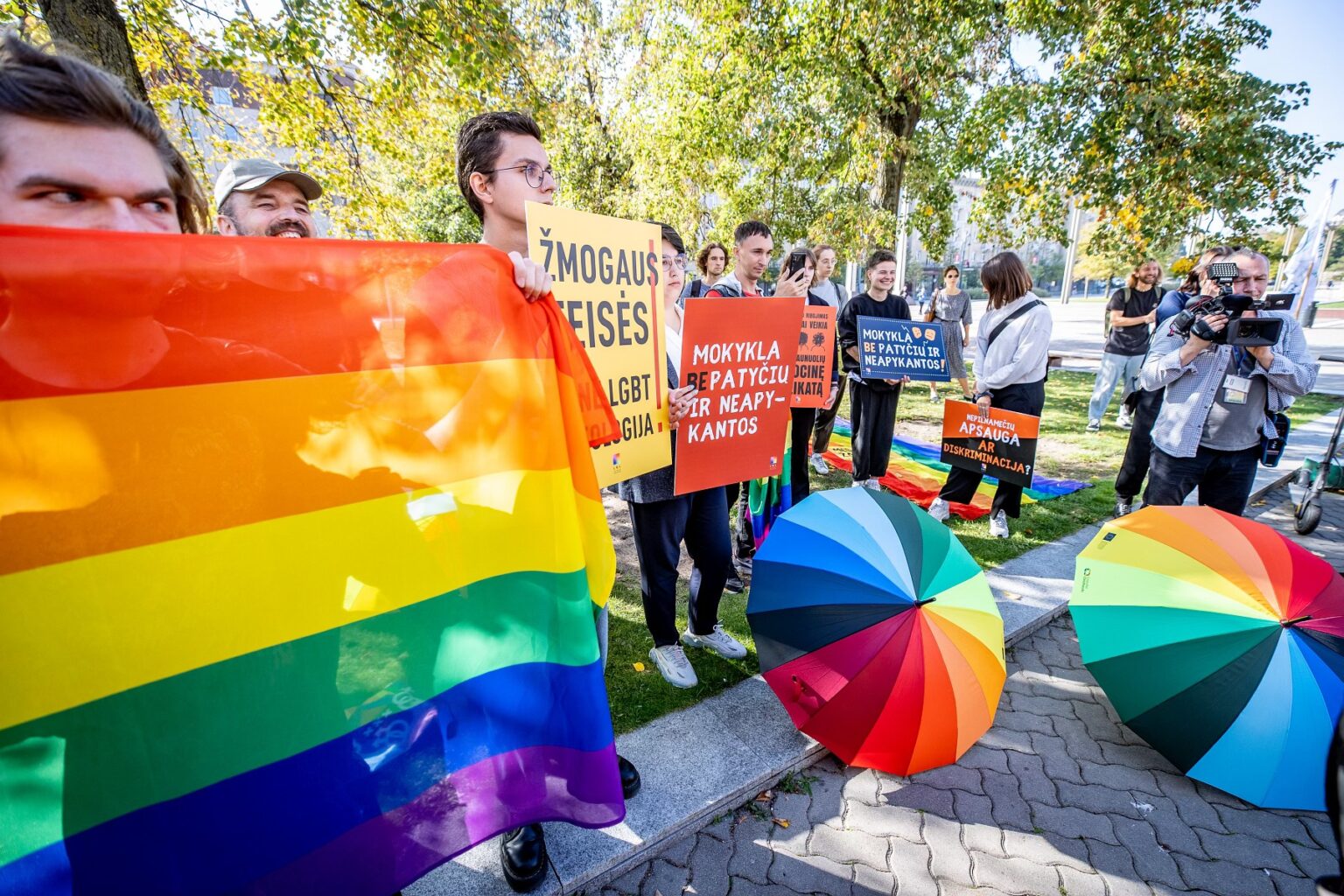
In a significant decision yesterday, Lithuania’s Constitutional Court ruled that a 15-year long ban on public depictions of LGBTI families should be repealed.
The Constitutional Court of Lithuania has declared the anti-LGBTI provisions of the Law on the Protection of Minors from Negative Effects of Public Information unconstitutional. These provisions, in place since 2009, had prohibited the depiction of LGBTI families in the public sphere, effectively stifling representation at public events and in the media.
The decision follows the European Court of Human Rights’ 2023 ruling in Macatė v. Lithuania, which found the law to violate Article 10 of the European Convention on Human Rights, safeguarding the right to freedom of expression. ILGA-Europe supported this case through a third-party intervention alongside Article 19 and the International Justice Clinic.
ILGA-Europe in association with the Lithuanian Centre for Human Rights and the Human Rights Monitoring Institute also supported our member organisation, LGL, through a Rule 9 submission to the Committee of Ministers of the Council of Europe concerning the implementation of the Macatė judgment.
The court’s reasoning empahsizes that:
- Information about diverse family models cannot be deemed inappropriate for minors.
- Laws must uphold respect for human rights, dignity, equality, pluralism, and tolerance.
- Minors deserve access to information that fosters their development into mature, well-rounded individuals.
According to Katrin Hugendubel, Advocacy Director at ILGA-Europe: “This landmark ruling marks a significant step towards ensuring that the rights of LGBTI people are respected in Lithuania. With this ruling, the anti-LGBTI provisions become ineffective and cannot be applied anymore. This is another confirmation from a highest courts that such laws are a violation of human rights and other courts should follow suit.”
Find out more about the current situation of protection of human rights of LGBTI people in Lithuania, on our interactive Rainbow Map.
For further context and details, see LGL’s statement here.
Joint statement on the decision to ban puberty blockers for trans youth in the UK
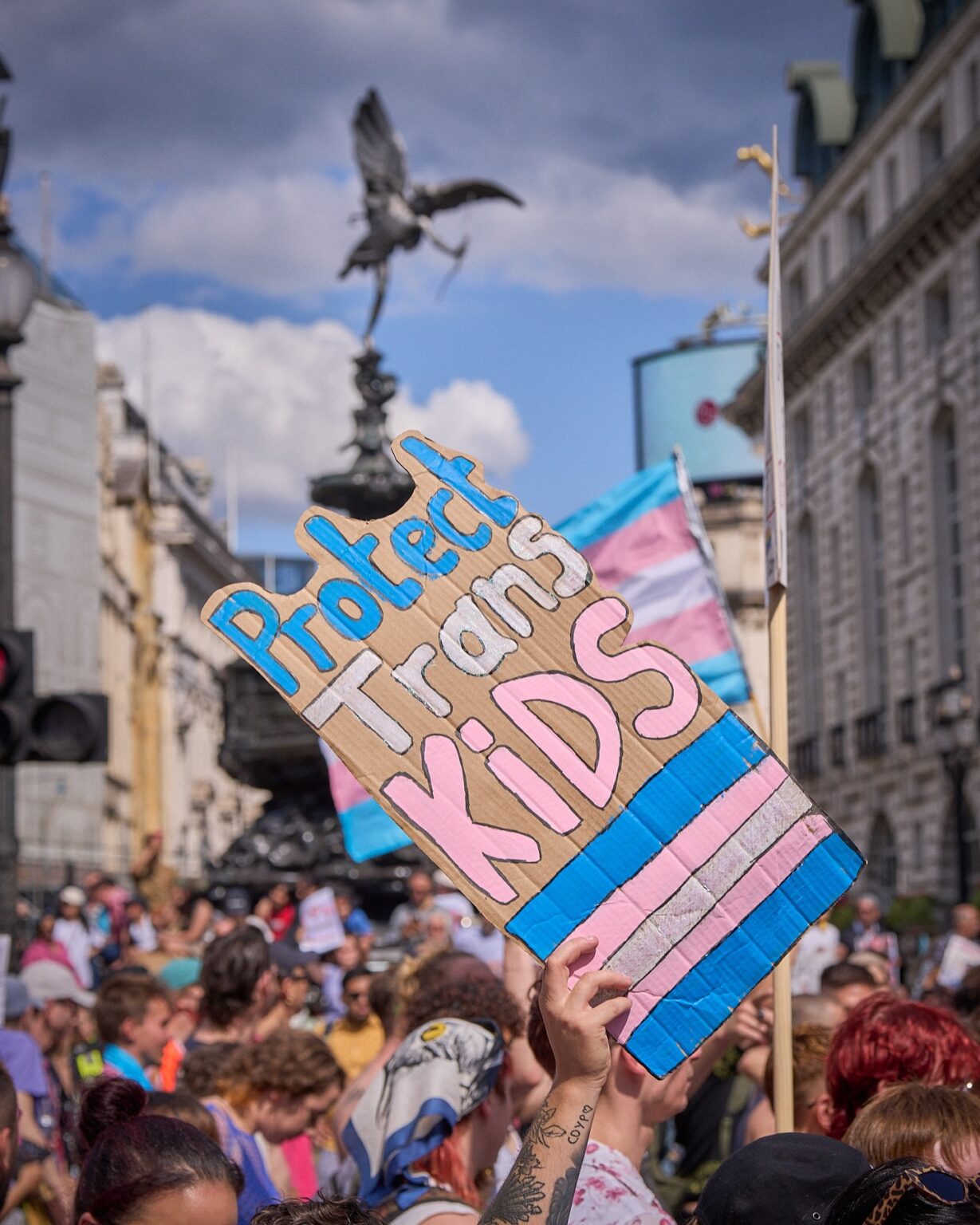
The recent decision to indefinitely ban the private prescription of puberty blockers for trans youth in the UK marks a profoundly troubling development in the ongoing struggle for the rights of trans people and access to necessary, life-saving and evidence-based healthcare.
In the UK, where no form of trans-specific healthcare is currently available for minors through the NHS and waiting lists have reached six years, the government’s decision to ban the private prescription of puberty blockers for trans youth constitutes a de facto ban on puberty blockers. This decision, which overrides years of established medical guidance and expertise, is deeply political, rooted in a divisive public discourse and misinformation rather than the recommendations of leading medical authorities. It threatens the well-being of vulnerable trans youth, whose lives depend on timely, supportive, and individualised healthcare.
ILGA-Europe, IPPF European Network, TGEU, IGLYO, and The Kite Trust call on the UK government to reconsider this harmful decision and to engage meaningfully with both the medical and scientific community and civil society groups representing the interests of trans youth and trans adults.
The framing and justification for this ban have leaned heavily on a polarised and often misleading public narrative about trans identities and related trans healthcare and epistemologically, and methodologically questionable studies about trans identities and trans-specific healthcare. Despite claims of prioritising child safety, this decision disregards the consensus of medical professionals and organisations such as the World Professional Association for Transgender Health (WPATH) and the Endocrine Society’s Clinical Practice Guideline, which have long endorsed puberty blockers as a safe and reversible option for managing gender dysphoria in minors. These treatments allow young people experiencing distress with their assigned gender to pause puberty, giving them time to better understand their needs and identity, without the added pressure of physical changes brought on by puberty.[1]
The political instrumentalisation of healthcare for trans minors has become a rallying point for anti-trans rhetoric, which often conflates all trans-specific healthcare with irreversible medical interventions. This characterisation is not only inaccurate but also deeply harmful. Puberty blockers do not lead to permanent medical transition[2] – they are a widely used and reversible treatment prescribed for various conditions, including precocious puberty.[3] By banning them for trans youth specifically, the UK government is singling out a vulnerable group for discriminatory and harmful treatment based on ideology rather than evidence.
Misinformation about the nature and effects of puberty blockers has played a significant role in shaping public opinion and policy. Opponents of trans-specific healthcare frequently cite exaggerated or unfounded claims about the risks of these treatments, ignoring the robust body of research demonstrating their safety and efficacy. Long-term studies show that puberty blockers and other trans-specific healthcare significantly reduce rates of depression and suicidality among trans youth[4] —outcomes that align with broader understandings of the critical importance of affirming care for marginalised populations.
Expert voices, including paediatric endocrinologists, psychologists, and trans health specialists, have been sidelined in favour of rhetoric that frames trans-specific healthcare as controversial. This erasure of medical expertise undermines the principles of patient-centred care and puts the health of trans youth at risk. The decision to ban puberty blockers ignores the individualised, case-by-case assessments that qualified professionals conduct before prescribing such treatments,[5] opting instead for an unyielding prohibition that strips both doctors and families of agency.
The consequences of this ban will be devastating. For many trans youth, the ability to access puberty blockers represents a lifeline. Denying them this care will force young people to undergo the changes of puberty associated with their assigned gender, exacerbating gender dysphoria and increasing risks of mental health struggles, including anxiety, depression, and suicidal tendencies. By removing a critical tool for early intervention, this decision condemns trans youth to unnecessary suffering and places an already marginalised group at greater risk of harm. Furthermore, this policy undermines the trust between trans individuals and the healthcare system. Families seeking support for their children will face increased barriers, uncertainty, and stigma, while healthcare providers may find themselves unable to offer the care they know to be best for their patients. These ripple effects extend beyond trans youth, chilling the broader provision of trans-specific healthcare and reinforcing a climate of fear and hostility.
Trans children and young people deserve safety, understanding, and access to the same standard of care afforded to their peers. Decisions about their healthcare should be guided by medical evidence and the expertise of trained professionals, not by political agendas. The indefinite ban on puberty blockers represents a failure to prioritise the rights and well-being of trans youth, and it sets a dangerous precedent for further erosion of the rights of LGBTI persons in the UK.
We urge policymakers to reconsider this harmful decision and to engage meaningfully with both the medical and scientific community and civil society groups representing the interests of trans youth and trans adults. Upholding the dignity and humanity of trans youth requires a commitment to evidence-based healthcare, free from the distortions of ideology and misinformation. Only by centering the voices and needs of trans youth can we hope to build a society that values and protects all its members.
Signatories
- ILGA-Europe
- IPPF European Network
- TGEU
- IGLYO
- The Kite Trust
[1] Cal Horton, Experiences of puberty and puberty blockers: Insights from trans children, trans adolescents, and their parents, Vol. 39(1), Journal of Adolescent Research, available at: https://journals.sagepub.com/doi/full/10.1177/07435584221100591v.
[2] Hannema et al, Endocrine management of transgender and gender diverse adolescents: expert opinion of the ESPE Working Group on Gender Incongruence and the Endo-ERN main thematic group on Sexual Development and Maturation, available at: https://pubmed.ncbi.nlm.nih.gov/39622214/.
[3] Giordano & Holm, Is puberty
delaying treatment ‘experimental treatment’?, Vol 21(2) International Journal of Transgender Health (2020).
[4] Van der Miesen et al, Psychological Functioning in Transgender Adolescents Before and After Gender-Affirmative Care Compared with Cisgender General Population Peers, Vol 66(6) Journal of Adolescent Health (2020); Olson et al, Mental Health of Transgender Children Who Are Supported in Their Identities, Vol 137(3) Pediatrics (2016); Nath, R., Matthews, D.D., DeChants, J.P., Hobaica, S., Clark, C.M., Taylor, A.B., Muñoz, G. (2024). 2024 U.S. National Survey on the Mental Health of LGBTQ+ Young People. West Hollywood, California: The Trevor Project. www.thetrevorproject.org/survey-2024.
[5] Cass, Hilary (2024), Independent review of gender identity services for children and young people: Final report, pp. 168-169, available at: https://cass.independent-review.uk/home/publications/final-report/
Russia failed to respond adequately to politician’s homophobic verbal assault, European Court finds

The European Court of Human Rights has found that Russia’s failure to respond adequately to homophobic verbal assault and physical threats by a politician against LGBTI activists is in breach of their human rights.
Last week, in case Yevstifeyev and others v. Russia, lodged by victims of homophobic hate speech in Russia, the European Court of Human Rights found a violation of Article 8 of the European Convention on Human Rights (right to private and family life), together with Article 14 (prohibition of discrimination).
The applicants are LGBTI rights activists who participated as part of the LGBTI column in a rally against hatred in St Petersburg where they had to face homophobic insults and physical threats from a well-known politician and member of the St Petersburg Legislative Assembly, who attended the rally. He also spread false information concerning the applicants.
The applicants lodged criminal complaints but the authorities refused to register them, claiming the politician had allegedly merely expressed his personal opinion about the LGBTI community. The applicants also lodged an administrative offence complaint and a civil complaint, which were dismissed on the grounds that the statements did not amount to insult, as they were not directed against specifically named individuals.
The Court first confirmed that the applicants had been directly targeted by the verbal assault and that the statements at issue affected their psychological well-being and dignity, and therefore fell within the sphere of their private life.
As to the authorities’ refusal to register the criminal complaints, the Court found that the domestic authorities had failed to strike a fair balance between the applicants’ rights to respect for their private life and to be protected from discrimination on the ground of sexual orientation on one hand, and the public interest in protecting freedom of expression on the other hand.
Turning to the administrative complaint, the Court found that the domestic authorities did not provide relevant and sufficient reasons for dismissing the administrative complaints. Lastly, as regards the civil proceedings, the Court ruled that, by finding that the applicants were not affected by the contested statement, the civil courts had failed to acknowledge the applicants’ rights to respect for their private life and to protection from discrimination on the ground of sexual orientation. The Court made clear that, contrary to the civil courts’ rulings, the politician’s statements could not be construed in a neutral way and were openly homophobic, had been particularly aggressive and hostile in tone, and included physical threats against the participants in the rally.
As a result, the Court concluded that the domestic authorities failed to comply with their positive obligation to respond adequately to the verbal assault and physical threats motivated by homophobia directed against the applicants. It recalled its previous ruling that “failure to address such incidents can normalise hostility towards LGBTI individuals, perpetuate a culture of intolerance and discrimination and encourage further acts of a similar nature.” The judgment can be accessed here.
New regulations pose greater risks to trans people in Turkey
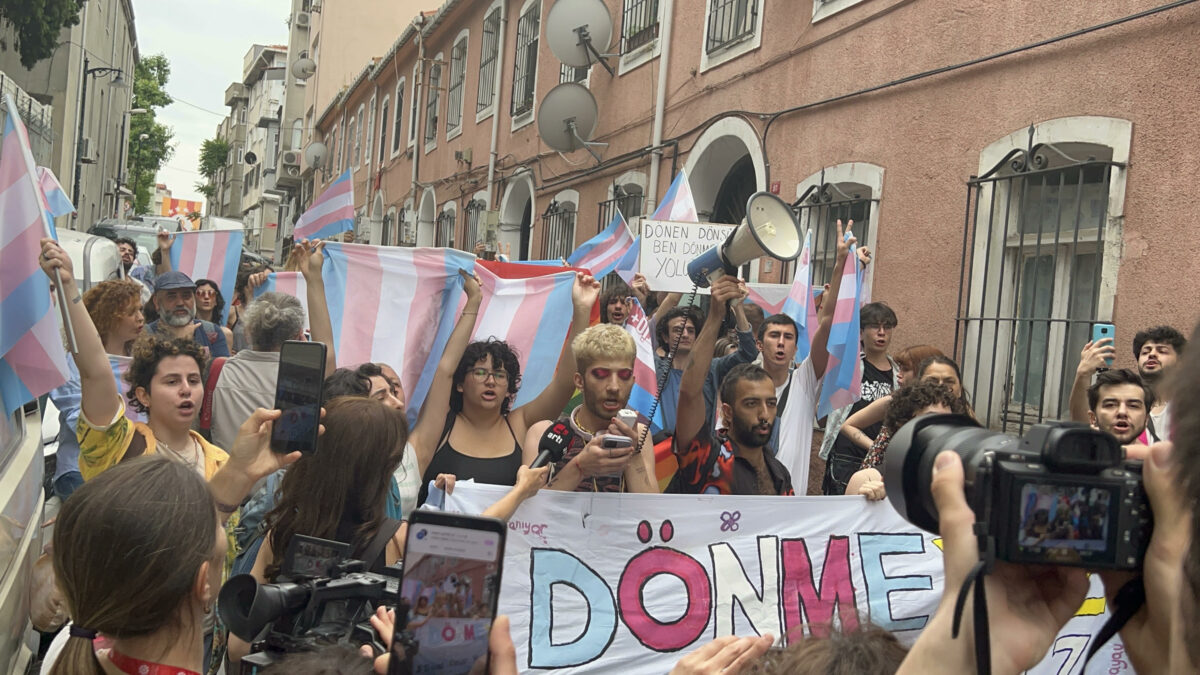
New changes from the Turkish authorities to the accessibility of hormones for trans people further threaten health and lives
On 20 November, the Turkish Medicines and Medical Devices Agency announced a new regulation that requires an e-prescription to access certain hormones used by trans people. The restrictions regulate access to hormones used mainly by trans masculine people as well as hormones used to treat diabetes. The two hormones under this new regulation used by trans women are also the same hormones used by cis women for birth control. This regulation therefore not only impacts trans people but also cis women and people with diabetes.
The new regulation exposes the pre-existing inadequacies in access of trans persons to healthcare services. While the regulation can be seen as an attempt to regularise the process of distribution and use of hormones, making the procurement and treatment safer for users, the Turkish healthcare system is extremely inaccessible for trans people, in particular as regards trans-specific healthcare. As a result, this new regulation will have severe consequences for trans people.
Currently in Turkey university research hospitals are the only hospitals that have specific gender transition councils which assess and provide a medical report for trans persons, which doctors then use to prescribe the necessary hormones. However, these hospitals are only available in 13 of the 81 provinces (usually those with major cities), resulting in those trans people living in rural areas having to travel to one of these 13 provinces. The journey time is usually long, and appointment availability is scarce, making such trips less affordable and accessible. For those who already live in major cities, it is still difficult to access the healthcare system as appointments are rarely available due to high demand – it can take several months to secure a first appointment. Subsequent appointments also have a similar waiting time. In total, it takes a minimum of six months to receive the necessary report for accessing hormone prescriptions. It is time and resource-intensive, and transphobia is often encountered along the way.
Hormones are a key part of trans-specific healthcare for many trans people – they impact not only physical traits but also frequently psychiatric health and wellbeing. For trans persons who have had their gonads removed, hormones are critical for good physical health, as stopping hormone therapy can lead to osteoporosis, among other things.
As a result, this new regulation will have severe negative consequences for the healthcare and mental health of trans people across Turkey, in particular trans masculine people and trans people in poverty. Many trans people will no longer be able to access these hormones, and some will even turn to unregulated pathways to procure them, which can result in health risks and exorbitant prices.
For such a prescription regulation to produce positive effects, the Turkish healthcare system needs to be restructured in such a way as to ensure that trans people can access healthcare in hospitals in all areas of the country. Trans-specific healthcare needs to be more widely provided and understood so that the current high demand can be met, with medical professionals ensuring the right to health of each patient, without discrimination.
More broadly, Turkey should uphold the case law of the European Court of Human Rights on legal gender recognition under Article 8. It should introduce a new legal framework that is quick, transparent and accessible with no requirements for invasive surgeries, and wide access to trans-specific healthcare. It should comply with the World Health Organisation’s 11th revision of the International Classification of Diseases which depathologises trans people in all areas of life.
Recent incidents of limitations on the right to freedom of assembly for LGBTI people in Turkey
On 20 November police blocked a demonstration to commemorate victims of transphobic violence in Ankara on the International Trans Day of Remembrance, and arrested four people, including a member of the Ankara Bar Assocation.
On 23 November police intervened in a demonstration by trans activists in Istanbul against the new e-prescription regulation, detaining 38 people. They were released after providing statements to the police.
On 25 November – The International Day for the Elimination of Violence Against Women – hundreds of people took to the streets in cities across the country, and were met with police repression in many cases. In particular, in Istanbul, the Governor’s Office banned all protests and demonstrations on the specified date, and police interventions resulted in 169 arrests. All of those arrested have since been released, apart from two LGBTI+ people from Azerbaijan, who were taken to repatriation centres. Due to the severe conditions and ill-treatment they were subjected to, including being deprived of food and medications, they were forced to “voluntarily return” to Azerbaijan. One of them was an LGBTI+ human rights defender from Azerbaijan who immigrated to Turkey due to being at risk of arrest in their country.
In Turkey LGBTI+ people are regularly subjected to arbitrary detention (often with excessive police force) and charged for participating in public events, or for holding rainbow flags in the public space. Public demonstrations are frequently banned or postponed under the pretext of “national security”, “public order”, “prevention of crime”, “protection of public health” or “public morals”, with police and governors excessive powers. These practices which include vague limitations on public assemblies allowing for arbitrary interpretation, breach Turkey’s own Constitution (Article 34) and the European Convention on Human Rights (Article 11) to which Turkey is party. Turkey should bring its practices in line with the ECHR and its own Constitution, halting arbitrary banning of protests and detention of participants.
Top European Court holds hearing on Polish refusal to recognise same-sex marriage certificate
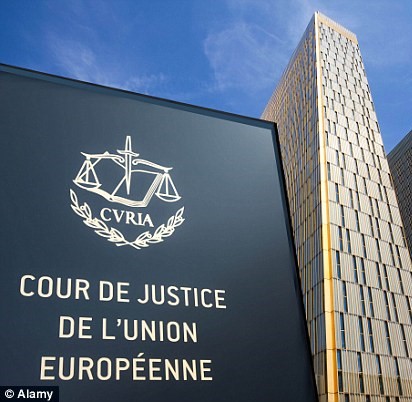
Case could establish critical precedent for the freedom of movement of same-sex couples within the EU
Yesterday, the Court of Justice of the European Union (CJEU) held a hearing in the case of Wojewoda Mazowiecki (C-713/23) concerning the recognition by Polish authorities of a same-sex marriage certificate obtained in another EU Member State.
The hearing follows Poland’s refusal to transcribe into the civil registry a certificate of same-sex marriage contracted in Germany between a Polish citizen and a Polish-German citizen. The couple currently resides in Poland.
The Court is asked whether this refusal conforms with the provisions of the Treaty on the Functioning of the European Union (TFEU) and of Directive 2004/38/EC, which establishes the rights of EU citizens to move and reside freely within the EU, read in conjunction with the European Charter of Fundamental Rights (ECHR), particularly the right to respect for private and family life and the prohibition of discrimination.
The Court is asked to follow the reasoning adopted in the recent judgment in the Mirin case, which confirmed that freedom of movement and other fundamental rights guaranteed under the Charter require authorities to transcribe changes to gender markers and forenames obtained in another EU Member State into their civil registries. By requiring Member States to amend entries in the birth certificates of EU citizens, Mirin ensures that the legal framework for registering and amending citizens’ data is consistent across EU Member States.
This would be a significant step towards the protection of same-sex couples across the EU, especially in light of recent European Court of Human Rights judgments in Przybyszewska and Others v. Poland which found the Polish state in violation of Article 8 (right to respect for private and family life) of the ECHR for failing to provide a specific legal framework recognising and protecting same-sex unions, and in Formela v. Poland which found that Poland breached the same provision for failing to recognise the relationships of two same-sex Polish couples married abroad.
According to Senior Strategic Litigation Officer with ILGA-Europe, Marie-Hélène Ludwig: “A positive ruling in this case would go beyond what the Court found in the Coman and Pancharevo cases and build on the Mirin judgment to recognise that transcription of marriage in civil registries is the only way to effectively ensure freedom of movement of same-sex couples in the EU, notably in countries still deprived of any legal framework recognising their union. This is especially important as marital status – just like one’s gender identity and sexual orientation – is a fundamental aspect of a person’s identity and personal status.”
According to attorneys Pawel Knut and Artur Kula from KMA Law Firm, the lawyers representing the applicants in the case: “The positive outcome of this case of may ensure that the transcription of the foreign marriage certificates of same-sex couples will be finally required from those Member States that still do not provide any form of legal protection for same-sex couples. We believe that this would also strengthen an effective protection for the rights of LGBT families around the EU”.
The Advocate General’s Opinion in this case will be rendered on 3 April 2025.ILGA-Europe is providing support to the applicants and their lawyers in this case.
EU member states unite against Hungary’s anti-LGBTI propaganda law at infringement hearing

Yesterday, the European Commission was joined by 16 Member States and the European Parliament in a hearing at the court of Justice of the European Union on whether Hungary’s anti-LGBTI Propaganda Act is a violation of EU law.
On November 19, the Court of Justice of the European Union (CJEU) held a hearing in the infringement proceedings against Hungary, initiated by the European Commission over anti-LGBTI legislation introduced in 2021, which censors inclusive sex education, equates LGBTI ‘lifestyles’ with paedophilia, blocks adoption for LGBTI couples, and restricts content in media and advertising.
The Commission stressed that the Hungarian state had seriously and blatantly violated EU law by passing a law that stigmatises the LGBTI community under the guise of “child protection”. This infringement is, in the Commission’s view, systemic, intentional and widespread, and constitutes a violation of Article 2 of the Treaty on European Union (TEU). This provision enshrines the fundamental values of the EU, including the obligation of Member States to respect human dignity, freedom, equality, the rule of law and the rights of persons belonging to minorities.
The hearing was attended by the Hungarian government, the governments of Belgium, Denmark, Germany, Estonia, Ireland, Greece, Spain, Luxembourg, Malta, the Netherlands, Finland, Sweden and the European Parliament.
All the Member States that spoke at the hearing expressed agreement with the Commission’s position that core values are integral to the identity of the European Union. These values represent a shared public order, based on mutual trust, which all Member States have committed to uphold upon their accession. The effective implementation of EU law, and thereby respect for these fundamental values, relies on good faith from the Member States. They argued that this good faith is absent in the case of the Hungarian propaganda law.
Several speakers highlighted the harmful impact of the legislation, pointing out issues such as the absence of sex education in public schools, the censorship of exhibitions, and fines imposed on bookstores. The representative of the Dutch government mentioned that 87.5% of the inquiries the Dutch media authority receives from foreign counterparts come from the Hungarian Media Council, asking about content that is fully accepted in the Netherlands and is considered a normal part of daily life. The Dutch government argued that the ban on LGBTI content in the media is not just a domestic issue for Hungary, but a concern for the entire European Union.
The contested legislation violates rights enshrined in the EU Charter of Fundamental Rights, such as the right to human dignity, freedom of expression, the right to private and family life and the prohibition of discrimination. As several Member States also noted, the law runs counter to the European Court of Human Rights’ judgement condemning the 2013 Russian anti-LGBT law, which said: “by adopting such laws, the authorities promote stigmatisation and prejudice and encourage homophobia, which is incompatible with the concepts of equality, pluralism and tolerance in democratic societies.”
According to Eszter Polgári, Head of the Legal Programme of Háttér Society, an NGO representing LGBTI people in Hungary: “The infringement proceedings against the Hungarian anti-LGBTQI legislation have become the largest human rights case in the EU, where the Court of Justice has to decide not only on the violation of the relevant sectoral directives, but also on whether the stigmatising and exclusionary legislation against sexual and gender minorities violates the EU’s fundamental values. If it answers yes to the latter, it will send a clear message to all Member States: no minority group, including the LGBTQI community, should be used for political purposes and demonised.”
Katrin Hugendubel, Advocacy Director at ILGA-Europe added: “Yesterday’s hearing was a key moment in our common efforts against the Hungarian anti-LGBTI law, as well as similar laws that are being proposed or in force across the EU. We were heartened to see the clear comments made by the European Commission and member states, rightly condemning Hungary’s anti-LGBTI law as a violation of EU law and making it clear that member states can no longer act against human rights with impunity, nor can governments go on instrumentalising minorities for political gains without being held accountable. A strong judgement in this case will send a strong message to other member states who have been adopting or keep proposing similar laws violating fundamental rights, making clear that they can no longer act against human rights with impunity.”
The Advocate General will deliver his opinion on the case on 5 June 2025.
Read Háttér Society’s press release on the hearing (in Hungarian) here.
Online learning session for LGBTI activists: Effective messaging in times of crisis

When a small LGBTI organisation faces sudden public scrutiny, knowing how to craft messages that unite rather than divide is crucial.
In this vital online session for LGBTI activists in Europe and Central Asia, we’ll explore how to frame messages that build a connection using real examples of organisations that have responded thoughtfully and strategically to crises.
From the first response to post-crisis engagement, we’ll discuss how to adapt your communications to meet the evolving needs of your communities while staying aligned with your long-term vision.
- Don’t wait for a crisis to hit!
- Join us to learn and exchange ideas on turning communication challenges into opportunities for resilience and connection.
- Walk away with ready-to-use tools, adaptable messaging frameworks, and the know-how to handle anything from backlash to unexpected media attention.
This 90-minute session will take place on Wednesday, December 4, 2024 (12.00-13.30 CET). Register for this session here: https://ilga-europe-org.zoom.us/meeting/register/tZIlcumppjgoGdEPX7qzEI4J97hqVnQpC8vP
Trainers
AJ Venturini (they/them)
AJ is an expert LGBTIQ+ campaigner, facilitator, and life coach with over a decade of experience delivering high-impact, creative projects on social change issues ranging from LGBTIQ+ to refugee rights. In their roles for ILGA-Europe, Amnesty International, Act Build Change and Gendered Intelligence, amongst others, they have been supporting change-makers, activists, and grassroots groups to deepen their collective care and wellbeing practices, knowledge, skills, and confidence to campaign for their rights and achieve their goals.
Evá Papadakis (he/they)
Evá is a multilingual strategic and digital communication expert, with over a decade of experience leading diverse teams and creating impactful global strategies to elevate the work of mission-driven international organisations focusing on the intersection of climate, refugees, and LGBTIQ+ rights. They have authored articles, toolkits and reports. Evá has field experience with UNHCR and contributed on Diversity, Equality & Inclusion initiatives at UN Globe & Global Advisory Group Member on Inclusion and Diversity for the High Commissioner for Refugees.
Call for participants: The Power of Data: Collecting and using data to tackle LGBTI homelessness

The training is organised by ILGA-Europe and delivered by dedicated researchers from Analysis Group.
It will take place in Brussels on 28 & 29 March 2025, with arrival on 27 March and departure on 30 March.
We know that data is key in the work on LGBTI homelessness. We need it to inform and support advocacy strategies and actions, campaigns, and alliance-building work. At the same time, very few groups can run full-scale research or outsource it.
Yet, organisations often already have access to unique data and evidence through their ongoing work and relationships with communities and allies. Leaning in on what is already in place, data gathering does not need to be a massive and expensive undertaking, and it can be done accessibly and creatively.
This training will equip LGBTI organisations working on LGBTI homelessness with accessible and fit-for-purpose ways to collect data and translate it into advocacy asks.
What you will get from the training
Here is a glimpse at what you can expect over the two days:
- A learning journey, from formulating a research question to translating it into a survey, to understanding the subsequent data and linking it back to your advocacy goals
- Tips and tricks for in-house data analysis and report writing in support of your advocacy goals
- A half-day group session in which you will apply and develop skills in a collaborative setting guided by the trainers
- Networking and mutual learning with a group of 15 activists from LGBTI organisations working on LGBTI homelessness across Europe
- Signposting to further resources and the potential of more follow-up coaching after the training.
The programme will be shared with selected participants closer to the event.
Practical details
- Training dates: 28 & 29 March, 2025
- Travel dates: arrival on 27 March, departure on 30 March. (Departure in the evening of 29 March is also possible provided that you attend the whole event)
- Language: English
- Location: Brussels
- Participation costs are covered by ILGA-Europe (see below)
- Participants are selected through an open competitive call. Number of participants: up to 15.
Who is invited to apply
ILGA-Europe offers this training to LGBTI organisations and groups from across Europe.
For The Power of Data to be an enriching experience, our aim is to bring together a pool of diverse organisations and activists in terms of strategies, profiles, experiences, and geography. Thus, we invite a maximum of one person from an organisation to apply.
The Power of Data training is right for your organisation if:
- It is an LGBTI organisation based and operating in Europe [1];
- Your organisation works on addressing LGBTI homelessness or has concrete plans that require using evidence on LGBTI homelessness, and needs to build its capacity in gathering and analysing data to advance this work;
- Your organisation has a clear vision of how the skills gained during the training will support your work on LGBTI homelessness;
- Your organisation has the capacity and plans to integrate the knowledge and skills gained in the training in its work;
- You, as the delegated participant, are supported by your organisation to dedicate time to the event, attending it in full, and to bring the knowledge back to the team.
As the delegated participant, you do not need to have in-depth skills in research or advocacy, but you need to hold in-depth knowledge of your organisation’s work on LGBTI homelessness and its specific needs and activities around data gathering, and you should be in a position to bring the knowledge from the training back to your organisation to apply it in practice.
[1] For this call Europe is considered to include the following countries: Albania, Andorra, Armenia, Austria, Azerbaijan, Belarus, Belgium, Bosnia and Herzegovina, Bulgaria, Croatia, Cyprus, Czech Republic, Denmark, Estonia, Finland, France, Georgia, Germany, Greece, Hungary, Iceland, Ireland, Italy, Kosovo, Latvia, Liechtenstein, Lithuania, Luxembourg, Malta, Monaco, Montenegro, Netherlands, North Macedonia, Norway, Poland, Portugal, Republic of Moldova, Romania, Russian Federation, San Marino, Serbia, Slovak Republic, Slovenia, Spain, Sweden, Switzerland, Turkey, Ukraine, United Kingdom.
How to apply
Please choose one representative from your organisation to apply.
Submit a completed application form by December 16, 2024, 23:59 (CET) to Nadzeya Husakouskaya at nadzeya@ilga-europe.org. Please indicate the title of the event (The Power of Data) in the subject line.
We will inform you about the outcomes of the selection by January 15, 2025 the latest.
Accessibility note: We aim at ensuring that this event is accessible for everyone in attendance. Please share your accessibility needs in the application form.
Costs of participation
ILGA-Europe covers participation costs for all selected participants, specifically:
- Accommodation in shared rooms with breakfast, with check-in on 27 March and check-out on 30 March;
- Travel costs to and from Brussels. If you are selected, you will need to book your own travel within the approved amount. You will get these costs reimbursed after the event, upon full attendance. If your organisation is working without any funding and unable to pre-book tickets for you, you can be exempt from this requirement. More information will be shared with selected participants;
- Visa costs and compulsory insurance;
- Joint meals: lunches and coffee breaks on 28 and 29 March, and a joint dinner on 28 March;
- Per diem in cash at the event that will cover the rest of the meals and subsistence on 27-30 March.
Can your organisation cover participation costs of its delegate fully or partially? Please mention it in the application form. This will allow us funding more organisations to attend the training in case of high competition. Please note that ability to contribute by cost-sharing is not a selection criterion.
Trainers and organisers
The training is organised by ILGA-Europe and delivered by a group of researchers from Analysis Group, building on our partnership throughout 2023-2024.
ILGA-Europe partnered with Analysis Group to build the movement’s knowledge and skills in gathering and using data in activism on LGBTI homelessness.
Analysis Group is one of the largest international economics consulting firms and a pro-bono partner of ILGA-Europe. From August 2023 to August 2024, Analysis Group joined ILGA-Europe’s No One Left Behind programme on LGBTI homelessness as research experts and coaches, supporting five LGBTI organisations in their research and data gathering projects on LGBTI homelessness.
Trainers:
- Mario Luca (he/him). Mario joined Analysis Group after completing his PhD in economics on extreme right voting and the refugee crisis in Italy. He specialises in empirical analysis for damage estimation and big data and machine learning applied to competition. Mario worked on multiple political projects and is currently coordinating the partnership with ILGA-Europe and AG Pride, the firm’s LGBTI association, in Europe.
- Giovanni Morzenti (he/him) is an economist who specialises in antitrust policy, competition matters and litigation. He volunteered in the epilepsy ward of the Piccolo Cottolengo di Don Orione in Milan and at the Caritas soup kitchen in Bergamo, where homeless people could find a warm place to eat and programs to access secure housing.
- José Alfonso Muñoz-Alvarado (he/him) is an economist consultant with a Ph.D. in Family and Labor Economics. He specialises on applying data analysis to support competition cases and market studies. Alfonso brings a collaborative approach to projects, handling data analysis and working closely with team members across disciplines.
Coordinator: Nadzeya Husakouskaya (they/them), Senior Programmes Officer, ILGA-Europe. Nadzeya leads No One Left Behind programmes at ILGA-Europe focusing on socio-economic justice.
Contacts
If you have any questions about The Power of Data, please reach out to Nadzeya via nadzeya@ilga-europe.org.
Statement following the hearing of the EU Commissioner-designate for Crisis Preparedness, Prevention and Equality

At the EU Commissioner confirmation hearings today, Commissioner-designate for Crisis Preparedness, Prevention and Equality, Hadja Lahbib voiced a strong commitment towards protecting and advancing the rights of vulnerable groups, including LGBTI people. Here is ILGA-Europe’s response.
ILGA-Europe have followed the hearing of the Commissioner-designate for Crisis Preparedness, Prevention and Equality Hadja Lahbib very closely, as her mission letter posed questions about the leadership, level of ambition and resources made available to ensure a strong EU Union of Equality and decisive EU action on the rights and equality of LGBTI people.
We are glad to have heard a strong commitment to the implementation of existing legislation regarding gender equality, gender based violence and protecting the rights of vulnerable groups. Strong implementation is indeed needed, not only of EU directives, but also on key CJEU judgements that for the moment remain empty promises for LGBTI people and their families across the EU. We welcome Lahbib’s commitment to the strengthened use of infringement procedures and fundamental rights conditionality in the distribution of EU funds. Moving forward, we will need to see the European Commission continue to be strong in its opposition to the ongoing backlash against the fundamental rights of LGBTI people that is growing in many EU member states.
But the level of ambition cannot stop there. The Commission needs to continue to be the key guardian of the Treaties and show strong leadership, also in light of shifting majorities in the Council, and work with member states to close the legal gaps in protection against discrimination and bias-motivated hate, as well as to make freedom of movement a reality for all. The Commmission needs to continue to put fundamental rights violations, such as intersex genital mutilation and forced sterilisation, on the agenda of EU institutions and actively work with member states to ban them.
We welcome that the Commissioner-designate clearly set out that she will meet with LGBTI organisations representing the people on the ground to assess the first EU LGBTIQ strategy and discuss together what needs to be included in the follow-up strategy.
We have already shared our assessment of the next steps needed with the European Commission and are looking forward to meeting with the Commissioner, if and when she is confirmed, as soon as possible to discuss how to ensure real mainstreaming throughout all services in the European Commission, and what concrete actions and initiatives we need to see in the next EC LGBTIQ Equality strategy to ensure strong leadership as well as the necessary support and resources.
Next steps
The committees’ chairs and political group coordinators will meet without delay to assess the performance and qualification of the Commissioner-designate. Based on the committee recommendations, the Conference of Presidents (EP President Metsola and political group chairs) is set to conduct the final evaluation and declare the hearings closed on 21 November. Once the Conference of Presidents declares all hearings closed, the evaluation letters will be published.
The election by MEPs of the full college of Commissioners (by a majority of the votes cast, by roll-call) is currently scheduled to take place during the 25-28 November plenary session in Strasbourg.
Joint statement: Kazakhstan risks further affiliating with Russia after MP requested to ban a leading LGBTI human rights group as “extremist”.
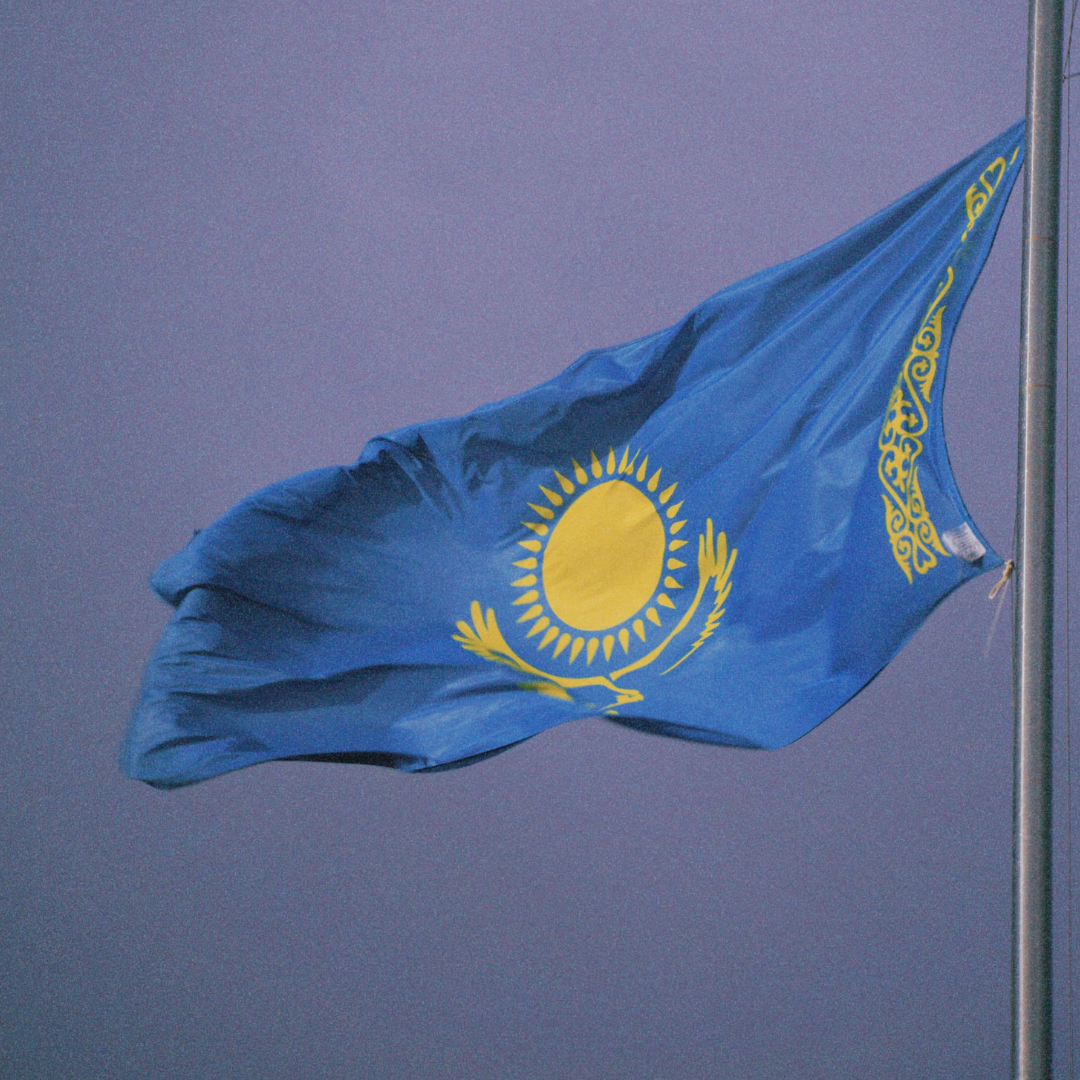
The recent initiative of a Member of Parliament of Kazakhstan to designate as “extremist” and ban an LGBTI civil society organisation, violates Kazakhstan’s human rights obligations and further affiliates it with Russia.
On 9 October 2024, Mr Rinat Zaitov, a member of the Parliament of Kazakhstan, speaking on behalf of the ruling party Amanat, formally requested the government to declare a leading LGBTI civil society organisation as extremist, which would lead to prohibition on its operation and the penalisation of its staff. This happened after a group of pro-Russian radical activists led by Bagila Baltabayeva, the leader of the Kazakhstan Union of Parents, stormed a private event organised by the feminist group Feminita for the LGBTI community in Almaty, Kazakhstan.
Baltabaeva and her group attempted to enter the venue where Feminita was holding the event and disrupt it. Earlier this year, the same group pushed for the petition to ban so-called “LGBT propaganda”, the public support of which was, according to independent sources, allegedly orchestrated by Kazakh officials. At the same time, Kazakhstan has been gradually introducing scrutiny on civil society organisations which are reminiscent of so-called “foreign agents” laws.
Political influence from Russia
State-facilitated violence against civil society activists and scapegoating of LGBTI people is part of the broader set of tools that also includes so-called ‘LGBT propaganda” laws and “foreign agents” laws. Such legislative attacks against human rights defenders protecting LGBTI individuals have a negative impact on the European Union, destabilising it by supporting claims from radical political forces within the EU.
The Government of Kazakhstan must not follow the path, which Russia and its allies have chosen in recent years. We call the Government of Kazakhstan not to declare Feminita or any civil society organisation supporting LGBTI people as extremist, and to duly protect civil society organisations from attacks from third parties, as well as to focus on actual public concerns.
We call on the European Parliament to unequivocally condemn this attempt to ban legitimate human rights activism, as well as any similar initiatives to use anti-extremist legislation against human rights defenders and civil society organisations.
We call on the European Commission to ensure that it is consistent with its own principles and values when cooperating with Kazakhstan’s government and that international commitments on human rights violations are respected across the board. In the event that Feminita or any other civil society organisation supporting LGBTI people is declared ‘extremist’ in Kazakhstan, we believe the European Commission will exercise continuity and that the new sanctions framework against Russia’s destabilising actions abroad will be fairly applied in a similar manner. We specifically call the European External Action Service and the EU Delegation to inform the Government of Kazakhstan about the potential consequences of such actions.
ILGA-Europe
Outright International
LSVD⁺ – Verband Queere Vielfalt
Hirschfeld Eddy Foundation
FRI – The Norwegian Organisation for Sexual and Gender Diversity
The Council for Global Equality
LGBT+ Denmark
Joint statement: EU Court of Justice strengthens trans rights by calling for the automatic recognition in birth certificates
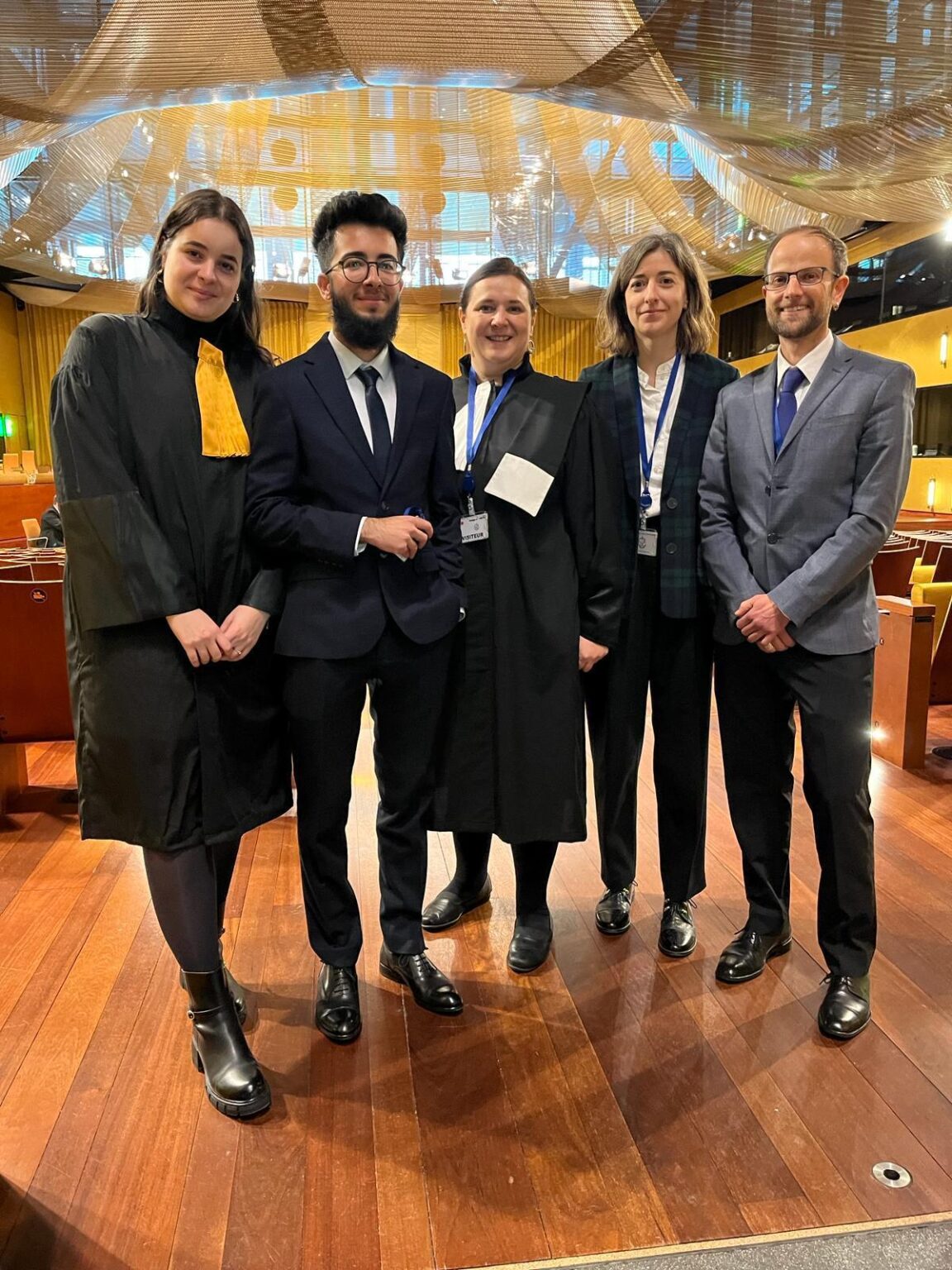
ACCEPT, TGEU and ILGA-Europe welcome today’s decision of the Court of Justice of the EU (CJEU) said that the refusal of an EU Member State to recognise changes of forename and gender acquired in another Member State is contrary to the rights of EU citizens.
The case C-4/23 Mirin concerns Arian Mirzarafie-Ahi, a Romanian trans man, with dual Romanian-British citizenship. Arian began the legal process to change his legal gender and name in 2017 and was granted a gender recognition certificate by UK authorities in 2020. At that time, the UK was in the Brexit transition period and still treated as a Member State of the EU. Subsequently, Romania refused to register the name and legal gender recognition of the applicant obtained in the UK and demanded that he go through Romania’s judicial legal gender recognition procedure. However, the European Court of Human Rights had already found that Romania does not have a procedure for change of name and gender marker that satisfies the standards of the European Convention of Human Rights (ECHR) of being quick, transparent and accessible.
The Romanian court asked the EU’s top court to clarify whether EU law required Romania to recognise another Member State’s decision acknowledging the name and gender marker of the applicant or if it could enforce its own procedures for legal gender recognition. In other areas of law, EU Member States commonly recognise each other’s decisions without further procedures. As such, this case marks a pivotal moment in addressing the mutual recognition of legal gender recognition decisions across EU Member States.
The CJEU Decision
The CJEU ruled in favour of Arian, stating that Romania must recognise the legal gender recognition granted in the UK. The Court emphasised that the refusal to acknowledge changes of forename and gender acquired in another Member State is contrary to the fundamental rights of EU citizens, particularly the principles of free movement and non-discrimination. The Court highlighted that mutual recognition of legal decisions among Member States is essential for upholding the rights of individuals within the EU, and that personal identity, including gender, is a fundamental element of one’s identity, protected under Article 7 of the Charter of Fundamental Rights and Article 8 of the European Convention on Human Rights. This landmark ruling reinforces the obligation of Member States to respect and recognise the legal gender identity of individuals as granted by other EU countries.
Impact
The importance of this judgement extends beyond the applicant’s individual circumstance, and underscores the broader issue faced by trans people whose legal gender recognition in one Member State is not acknowledged elsewhere in the EU, preventing them to travel freely, live, work or study across the EU, or even to vote, as any other citizen is able to. The judgement confirms the principle that rights legally obtained in one Member State must remain valid throughout the EU.
Reactions
According to Arian’s legal counsel, human rights lawyer Iustina Ionescu: “Today’s verdict has shown us that trans people are equal citizens of the European Union. When you have rebuilt a life in another part of the European Union because you are not welcome in your own country, it is normal to ask to be treated with dignity when interacting with the authorities in your home country. The fact that today the Court ruled on the mutual recognition of LGR decisions, no matter how different the procedures are in the Member States, should determine Romanian authorities to also adopt a fast, transparent and accessible national procedure, as requested by existing ECHR jurisprudence.”
TGEU Expert Advisor, Richard Köhler, said: “The CJEU’s ruling in the Mirin case is a monumental victory for trans people in Europe! Arian was forced to navigate a legal nightmare, facing the prospect of conflicting passports and demands for sterilisation to match his legal gender on Romanian and UK documents. Member States must recognise each other’s decisions—this is about equality and dignity. Romania, it’s time to act: Arian deserves his passport now, and the country needs a legal framework for recognising foreign gender identities.”
ILGA-Europe’s Senior Strategic Litigation, Marie-Hélène Ludwig added: “Today’s ruling confirms that without mutual recognition of legal gender recognition from one Member State to another, the right to freedom of movement and residence is not guaranteed for trans people in the EU. It is a great victory that shows the power of strategic litigation in the EU. This judgement will have an immensely positive impact, increasing legal protection for all trans people in the EU, all the more as certain EU countries like Romania still do not provide a legal framework for legal gender recognition conforming with European Court of Human Rights’ standards.”
Romanian NGO ACCEPT is a plaintiff in the case alongside Arian. TGEU and ILGA-Europe supported ACCEPT throughout the case, and joined Arian’s legal team at the Oral Hearing before the CJEU in January 2024.
Call for participants: Meeting on national-level actions to end conversion practices

On 6 December 2024, ILGA-Europe will host a one-day in-person meeting in Brussels, Belgium, for up to 20 activists to talk about strategies and lessons learned regarding banning conversion practices.
An increasing number of countries in Europe and Central Asia have adopted or are in the process of developing bans on conversion practices. As of September 2024, ten countries have such bans in place: Belgium, Cyprus, France, Germany, Greece, Iceland, Malta, Norway, Portugal, and Spain. Efforts to develop bans are also ongoing in several other countries in the region. According to ILGA-Europe’s member organisations, there are several issues that cause regular problems in the development and debate of these bills, including sanctions and whether or how to cover conversion practices when the person subjected is an adult.
The purpose of this meeting is to gather information about the various existing and planned national-level bans, to collect good practices and responses to common issues, and to map areas where additional information is needed for advocacy in pursuit of ending these practices at the national level. The meeting is open to national level activists working on ending conversion practices, from both countries that have and have not yet adopted bans.
Logistical details
- All travel costs of selected participants, including transportation, accommodation for two nights, and subsistence, will be covered by ILGA-Europe
- The meeting is open to activists from anywhere in Europe
- Attendees will be expected to actively engage in the meeting and present about their national situation to the group (more details to be provided to selected participants)
- The meeting will take place in English
- Specific questions on transportation needs, accessibility needs, dietary requirements, etc. will be collected after selection of participants
Applications
If you’re interested in attending the meeting, fill out this application form.
Applications are due by 23:59 CEST on Monday, 6 October 2024.If you have any questions, please contact Cianán Russell, ILGA-Europe Senior Policy Officer: cianan@ilga-europe.org
Joint statement: Welcoming European Court judgement on Poland’s failure to protect same-sex couples married abroad
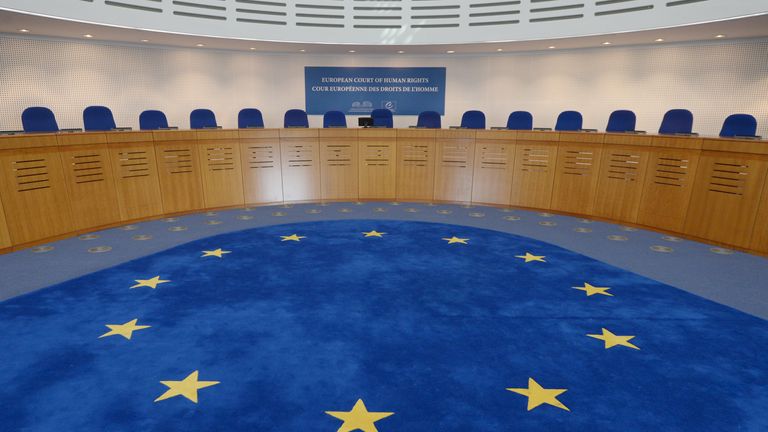
The European Court of Human Rights has found that Poland breached the right to respect for the family life of two same-sex Polish couples married abroad by failing to recognise their relationships.
ILGA-Europe, the International Federation for Human Rights (FIDH), the Network of European LGBTIQ* Families Associations (NELFA), and the European Commission on Sexual Orientation Law (ECSOL) jointly welcome a ruling released today in the case of Formela and others v. Poland, in which the European Court of Human Rights (ECtHR) found that Poland violated Article 8 (the right to respect for private and family life) of the European Convention on Human Rights.
The case concerned two same-sex Polish couples who married respectively in the UK and in Denmark, and requested Polish authorities to register their marriages contracted abroad. The authorities dismissed the requests, finding that registering their marriage would be contrary to the Polish legal order which allowed only marriage between different-sex couples. This failure resulted in the applicants’ inability to regulate fundamental aspects of their daily lives: they were prevented from taking leave to care for their ill partner; could not extend health insurance to cover their partner; were treated as being unrelated in the field of taxation and could not benefit from an exemption from donation tax granted to next-of-kin or from the right to submit a joint tax declaration.
The Court decided that “by refusing to register the applicants’ marriages under any form and failing to ensure that they have a specific legal framework providing for recognition and protection, the Polish authorities have left them in a legal vacuum and have not provided for the core needs of recognition and protection of same-sex couples in a stable and committed relationship.” The Court added that none of the public interest grounds put forward by the Polish authorities could prevail over the applicants’ interest in having their respective relationships adequately recognised and protected by law.
The Court referred to its landmark judgement of December 2023 in Przybyszewska and others v. Poland finding that Poland had breached Article 8 of the Convention as it had failed to comply with its positive obligation to ensure that same-sex couples had a specific legal framework providing for the recognition and protection of their unions.
Poland is also bound by the 2018 Court of Justice of the European Union Coman landmark ruling requiring EU Member States to treat same-sex couples in the same way as different-sex couples when they exercise freedom of movement rights in the EU.
On 27 December 2023, Poland’s Prime Minister, Donald Tusk, announced that a bill to legalise same-sex unions would be introduced and debated in early 2024. This bill was added to the government’s agenda on 8 July 2024.
Annamaria Linczowska, Advocacy and Litigation Officer at Campaign Against Homophobia (KPH) in Poland said: “Today’s verdict shows once again that through lack of legal protection and recognition of same-sex couples, Poland does not meet the Council of Europe standards of human rights protection. Poland should no longer be one of the few CoE Member States that do not provide recognition for same-sex couples. This judgement is an important argument for implementation of civil unions and marriage equality in Poland. To provide a wide protection of human rights, Poland can not forget about same-sex couples and their safety.”
Read KPH’s press release here.
According to Milena Adamczewska-Stachura, who represents the Love Does Not Exclude Association, involved in the fight towards marriage equality in Poland: “Today’s rulings are a wake-up call for the Polish government, reminding it that the unchanging, complete lack of protection for same-sex couples violates the European Convention on Human Rights. Today’s judgement is an important tool for legal practitioners who fight in the courts for transcription of foreign marriage certificates, and a small but important step towards equality.”
ILGA-Europe, FIDH, NELFA and ECSOL submitted a joint intervention in the case.
According to Senior Strategic Litigation Officer at ILGA-Europe, Marie-Hélène Ludwig: “Today’s judgement is another important step towards due recognition and protection of same-sex couples in Poland, whether they are married abroad or wish to legalise their unions in Poland. It is however unfortunate that the Court considered once again that it was unnecessary to examine the applicants’ complaint under Article 14 of the Convention (non-discrimination).”
Daniel Martinović, President of NELFA, said: “We welcome today’s judgement as a powerful affirmation of the rights of same-sex couples in Poland and beyond. This ruling should serve as a beacon of hope and strength for all queer families, inspiring us to continue striving for a more inclusive and secure future where our relationships are recognised, respected, and protected.”
Helmut Graupner, Co-Coordinator of ECSOL, pointed out that “this is the second time Europe’s highest human rights court made clear that Poland is violating the European Convention of Human Rights by refusing same-gender couples formal recognition of their partnership. It should cause Poland to speedily meet European minimum human rights standards. If not going beyond them, as it had done by completely decriminalising homosexuality as early as 1932 when many other European countries like Great Britain, Germany, Austria, Switzerland, Czechoslovakia, Hungary, Norway and Finland still had a criminal total ban on consensual homosexual relations between adults.”
“Today’s European Court of Human Rights’ ruling sends a strong message to Poland and all Council of Europe member states that they must urgently address the persistent discrimination against same-sex couples and grant them equal rights with heterosexual couples’ concluded Elena Crespi, Head of the Europe Programme at FIDH. “The judgement also offers the Polish government a chance to demonstrate its commitment to implementing European court rulings, as part of its efforts to restore the rule of law and align Poland with international standards’.
Statement: The President of Georgia must not sign “On Family Values and the Protection of Minors” legislative package into law

ILGA-Europe call on President of Georgia, Salome Zourabichvili not to sign into law a draconian anti-LGBTI package that will have far-reaching negative impacts on lives and human rights, and on Georgian society as a whole.
In the face of rising authoritarianism, Georgia’s civil society and LGBTI community are battling draconian laws inspired by Russia, threatening their democratic rights and freedoms ahead of a pivotal national election. ILGA-Europe stand in support of our Georgian members and other organisations, and urge swift and decisive action from policy-makers and allies.
On 17 September, the Georgian Parliament, in a third and final reading, passed the “On Family Values and the Protection of Minors” legislative package originally proposed by the Georgian Dream party, which aims to ban information about LGBTI people in various public spheres and directly curtails the rights and freedoms of LGBTI people in Georgia, impacting the population of Georgia as well as foreign residents.
This legislative package was announced on 4 June 2024, just two weeks after the adoption of a Foreign Agent law that would see civil society and independent media that receive more than 20% of their funding from abroad forced to register as organisations “bearing the interests of a foreign power” and to open all their internal documents for inspection by the authorities.
The anti-LGBTI legislation specifically targets the LGBTI community with a slew of amendments to 18 existing laws. It purports to combat “LGBT propaganda” and protect national and religious values. Its provisions include:
- A ban on advertising, public demonstrations or information in schools in connection to LGBTI people and identities
- A ban on legal gender recognition
- A ban on any kind of trans-specific healthcare, such as hormone therapy
- Making “biological sex” markers mandatory in state issued documents and labour contracts
- A ban on adoption for same-sex couples
- A ban on any legal recognition of same-sex couples
The laws that are being amended are:
- The Civil Code
- The Law on Adoption and Guardianship
- The Code on Children’s Rights
- The Law on Healthcare
- The Law on Civil Acts
- The Law on the Procedure for Issuing Identity Cards (Residence Permits) and Passports of Citizens of Georgia for Registration of Citizens of Georgia and Foreigners Residing in Georgia
- The Law on Early and Preschool Care and Education
- The Law on General Education
- The Law on Vocational Education
- The Law on Higher Education
- The Law on Broadcasting
- The Law on Advertising
- The Law on Freedom of Speech and Expression
- The Law on Assemblies and Demonstrations
- The Law on Civil Service
- The Code of Administrative Offences of Georgia
- The Criminal Code
- The Labour Code
The far-reaching effects
This law will in practice make it impossible for Georgian LGBTI people to have their partnerships recognised, to adopt, or for their children to be protected by law. These provisions will mean that foreigners moving to Georgia will not have their family ties recognised by the Georgian state, which will result in numerous practical and administrative issues, including separation of families.
Trans people, and some intersex people, will have their rights and quality of life greatly reduced due to the ban on legal gender recognition and on any kind of trans-specific medical interventions including hormone therapy. Lack of access to such support has been proven to lead to significantly worsened mental health outcomes for trans people, which can be life-threatening.
The requirement of state issued documents and labour contracts to show the so-called “biological sex” marker of the person will impact many trans and intersex people in all areas of life, including access to education, healthcare, employment, whether they are Georgian citizens or foreign residents. The mismatch of identity documents with a person’s gender identity and/or expression will result in higher rates of discrimination, violence and harassment against many trans and intersex people, in all areas of life.
The ban on public advertising, information in schools, and public gatherings is an effective censorship of the portrayal of LGBTI people in the public sphere, which not only curtails freedom of expression and assembly of LGBTI people and anyone wishing to support them or even talk about them, but will have a direct impact on various sectors of society such as business, culture, media and education. These provisions contravene Georgia’s own Constitution.
The legislative package also impacts the ability and future of a range of professions, such as medical professionals, educators, reporters, to do their jobs without discrimination, censorship and in adherence with the Georgian Constitution, while not facing prosecution for it. Finally, while claiming to protect minors, the package will put minors at risk of violence and violations of rights. The impact of this type of legislation on the lives of children is rigorously documented, for example in a report by HRW.
Closing space for civil society and human rights defenders
The combination of both the foreign agent law and the anti-LGBTI legislation renders the functioning of LGBTI civil society organisations and activists in Georgia almost entirely impossible. Already in May, the Council of Europe’s Commissioner for Human Rights commented on how the foreign agent law would specifically target LGBTI civil society. On 21 May, the Venice Commission published an Urgent Opinion on the foreign agent law, concluding that the law’s restrictions on the rights to freedom of expression, freedom of association and privacy are incompatible with international and European standards regarding democracy and non-discrimination.
Political scapegoating
With Parliamentary elections in Georgia scheduled for October 2024, in which the Georgian Dream party is seeking another term in office, the fast-tracked adoption of this law and heightened political hate speech targeting LGBTI people is a clear example of instrumentalising LGBTI lives for electoral gain. Such hostile legislation and incitement of hatred by public figures against LGBTI people has already led to a surge in hate crimes and attacks on civil society in the recent period. As evidenced by the examples of other countries, more hostility towards the LGBTI community can be expected.
In light of these developments, we urge the Georgian authorities to curb the violence targeting the LGBTI community and civil society.
Significant opposition
Opposition to this bill has been significant among Georgian society, which supports democracy, EU accession and a thriving civic space, and is opposed to Russian-style anti-democratic laws. Huge protests have been taking place in recent months all over Georgia, in which tens of thousands demonstrated in the streets against the adoption of this legislation.
We call on the President of Georgia not to sign the “On Family Values and the Protection of Minors” legislative package into law, and on all our international allies to support this call.
We call on the Public Defender of Georgia to take all measures to evaluate the compatibility of this package of laws with Georgian law and international and European standards on fundamental rights and freedoms, including but not limited to the European Convention on Human Rights and the jurisprudence of the European Court of Human Rights, and to ensure the challenging of any breaches through the relevant courts.
We call on all our allies and future allies in civil and political movements to take measures to stop the long-term impact of anti-democratic and anti-European initiatives in Georgia and other countries targeted by increasing authoritarianism.
In light of these developments, we remind the EU and Georgia that respect for rule of law and human rights must remain at the core of EU-Georgia relations. The EU’s accession process is anchored in the respect for fundamental rights, including those of LGBTI people, and such respect remains a cornerstone in all areas of the EU’s external action. We therefore call on the EU institutions to ensure that all discussions on EU-Georgia relations take into account the human rights concerns, and that all steps toward engaging with Georgia are used to promote tangible human rights improvements in the country. We also call the EU to adopt efficient measures, including immediate visa bans for members of Parliament and other officials responsible for introducing, drafting, and adoption of this law.
- Georgia currently sits on the 36th place out of 49 European countries on our Rainbow Map with a total 25% score. The recent legal developments might significantly push the countries’ score and ranking down.
Joint statement: EU Court of Justice Advocate General calls on Hungary to correct trans refugee’s gender marker in national registries
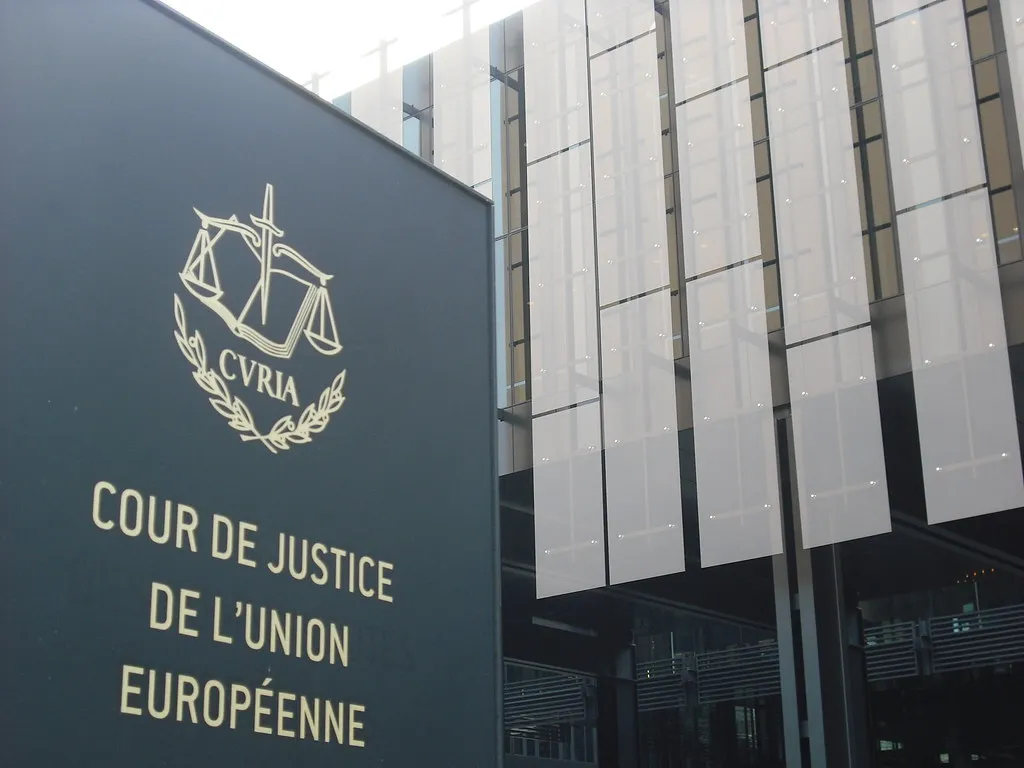
Háttér Society, ILGA-Europe and TGEU welcome an opinion from the Advocate General of the Court of Justice of the European Union stating that Hungarian immigration authorities must correct the gender marker of a trans person in its national immigration registries upon request.
Today, the Advocate General of the Court of Justice of the European Union (CJEU) has issued an opinion on the case of Deldits (C-247/23) calling on Hungary to correct the gender marker of the applicant in the national immigration registry upon request.
The opinion specifically relates to the case of a trans refugee in Hungary who has been denied legal gender recognition (LGR) in the asylum register since 2021. Represented by Háttér Society and the Hungarian Helsinki Committee, the complainant, who was granted refugee status in Hungary in 2014, has sought the rectification of his gender marker and name (as it reflected his sex at birth) on the national registry under Article 16 of the EU’s General Data Protection Regulation (GDPR).
This case raises crucial questions for the CJEU: whether the GDPR mandates the rectification of the gender marker on national registries upon request, and if so, does this request require evidence? If so, does it need to include proof of surgical intervention?
Advocate General Collins stated that following Article 16 GDPR in conjunction with Article 5(1)(d) GDPR Hungarian authorities need to rectify the gender of the applicant, whose data they recorded inaccurately in the first place. He also pronounced that while evidence might be requested, proof of surgical intervention cannot be required.
This case marks a pivotal moment in the ongoing battle for the rights of trans people in Hungary. The 2018 Constitutional Court decision and the 2020 European Court of Human Rights judgment affirmed the right of trans refugees to legal gender recognition. Nonetheless, the Hungarian legislature has not implemented the necessary changes. Hungarian citizens have not had access to LGR since May 2020, whilst refugees never had access to such recognition.
Eszter Polgári, Director of the Legal Program at Háttér Society, emphasised the potential implications of a ruling in line with the opinion: “The preliminary ruling reflecting the Advocate General’s opinion might have an impact beyond the specific case, as a positive decision of the Court of Justice of the European Union will hopefully force the legislator to reconsider the procedure on legal gender recognition also for Hungarian citizens, and bring it in line with international human rights and EU law, including the relevant provisions of the GDPR.”
TGEU Expert Advisor, Richard Köhler, adds: “Respect and recognition matter for everyone. For many trans people it is a significant step to living fulfilling lives. The Advocate General’s opinion is a substantial move towards EU Member States finally recognising their responsibility to introduce proper legal gender recognition procedures for all trans people.”
ILGA-Europe Senior Strategic Litigation Officer, Marie-Hélène Ludwig, said: “This opinion is a significant development for the rights of trans people in the EU, including refugees, particularly in countries still deprived of any legal framework for legal gender recognition, in breach of their international obligations. We are looking forward to the judgment confirming Member States’ obligation to record correct gender markers in all national registries.”
The Advocate General at the Court of Justice of the European Union offers independent, expert legal opinions on cases to guide the judges in making their final decisions.
The CJEU’s decision is expected at the beginning of 2025. It holds significant potential to influence the legal protections for trans people within Hungary and across the EU.
ILGA-Europe and TGEU – Trans Europe and Central Asia are providing support to Háttér Society in this case.
Joint statement: Trans children and young people in schools deserve safety and understanding
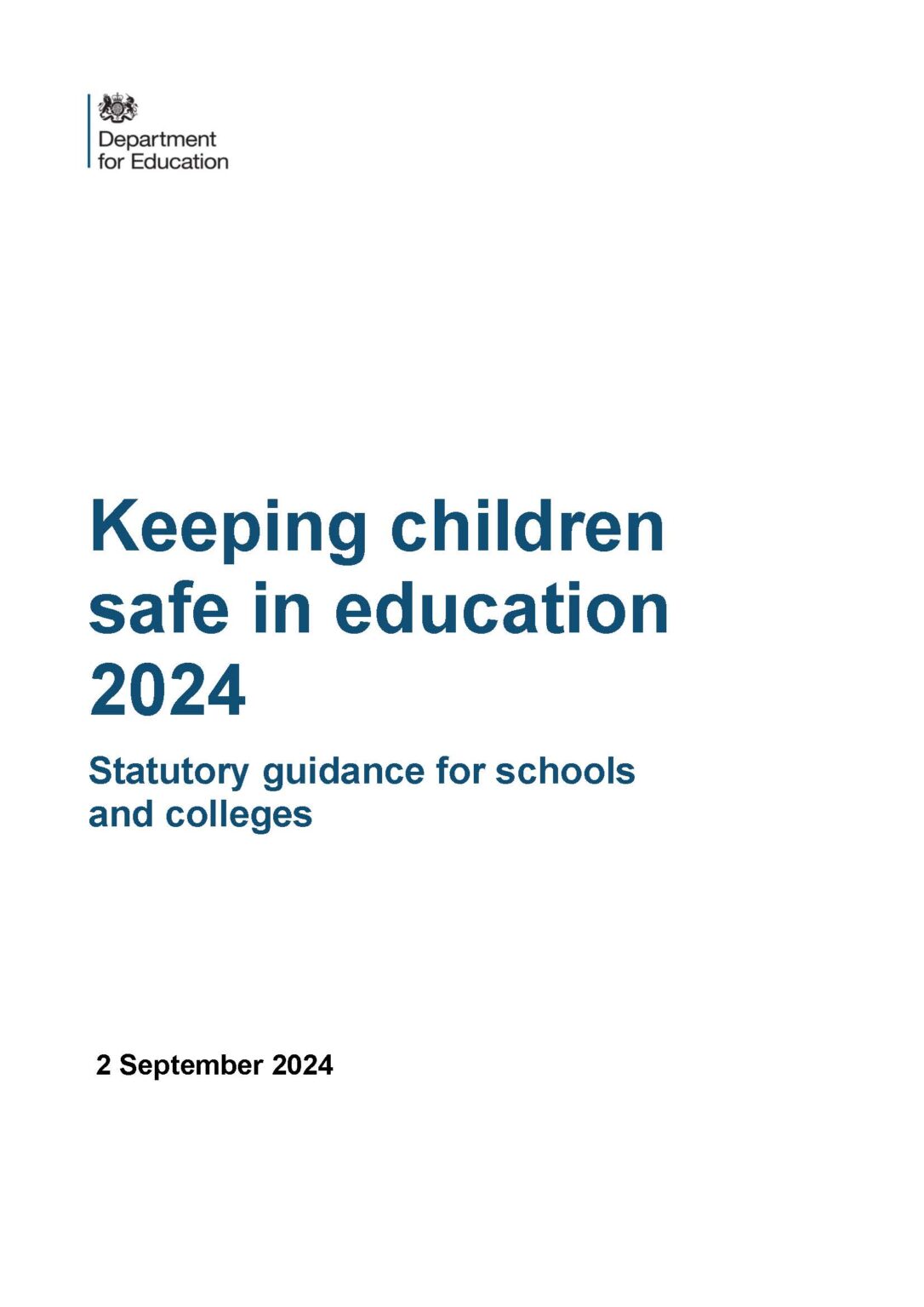
This statement was drafted by IGLYO with input from UK inclusive education experts and Members, and was endorsed by ILGA-Europe and Transgender Europe (TGEU).
We condemn the UK Statutory Guidance for Schools & Colleges and their failure to include trans and non-binary students in an affirming, supportive way.
Returning to school in September should be an exciting time for young people, catching up with friends, and new adventures ahead. Yet, trans children and young people in England continue to be targeted by exclusionary policies in education. On 2 September, the UK government published its updated legally-binding guidance for schools and colleges in England, with a section on LGBT persons that remains under review, titled “Keeping Children Safe in Education 2024”.
While we recognise the importance of providing clear guidance to schools and colleges in relation to safeguarding young people, we are concerned about the harmful and untrue narratives underlying this guidance in relation to young people’s identity. If kept in its current state, this guidance could provide a pathway to strip young trans people of their rights and agency, while perpetuating harmful stereotypes.
We are particularly concerned by the following:
- The updated guidance refers to children and young people being LGB in affirming ways but has removed parallel references for trans children and young people. We strongly condemn the government’s decision to remove trans identities from this list and its previous guidance and stress the need to reintroduce language that protects young trans people. To keep trans children safe in education, we call upon the UK government to recognise the harms of transphobia and bullying ever present in UK schools and colleges and to provide a clear framework in relation to safeguarding trans children’s well-being and identity.
- We also note with concern that the UK government continuously refuses to recognise trans identities in young people as real, conflating such terminology with ‘gender questioning’ throughout its guidance. This rejects the idea that young people can be trans. We recall that this linguistic shift was observed in other recent government guidance, including the draft schools and colleges guidance “Gender questioning children” and the “Draft Relationships Education, Relationships and Sex Education (RSE) and Health Education” statutory guidance.
- The UK government cross-references guidance that is in draft form and in consultation to reinforce its harmful messaging. There has been no response by the government to the consultation, including to concerns expressed through inputs by educators, policy experts, human rights groups, and young people themselves during the consultation.
- The “Keeping Children Safe in Education 2024” guidance uses the Cass Review as an evidentiary basis for this policy change, despite its poor and inconsistent use of evidence, pathologising approaches, and exclusion of service users and trans healthcare experts. As stated by healthcare activist and feminist researcher Dr Ruth Pearce in an article titled “What’s wrong with the Cass Review? A round-up of commentary and evidence” (2024), the Cass Review “has been extensively criticised by trans community organisations, medical practitioners, plus scholars working in fields including transgender medicine, epidemiology, neuroscience, psychology, women’s studies, feminist theory, and gender studies”.
- The “Keeping Children Safe in Education 2024” guidance recommends that families are involved in social transition in schools, despite the potential safeguarding risks of outing students to their caregivers. Research by Galop (2022), UK’s LGBT+ anti-abuse charity, noted that 2 in 5 trans or non-binary people had experienced abuse at the hands of family members, with the majority experiencing this before they turned 18 and often in relation to their gender identity. We reiterate that all young people, including trans young people, have the right to privacy, which must be respected. Trans children and young people should be supported in choosing for themselves when and how to share information about themselves with their parents or guardians. We are also concerned that the government refers to ‘exceptionally rare’ situations in which there could be a safeguarding reason to not inform parents but provides no evidence for this being exceptionally rare and no guidance for how schools decide when this risk threshold is met.
- We also stress that the guidance as it stands now recommends that schools encourage parents to seek “clinical help and guidance”, which is not only dehumanising and pathologising, it is also virtually impossible due to the UK government’s restrictions on gender-affirming care to young trans people. Parents and guardians should listen to trans children and young people and respect their identity and wishes. Not rush them off to a doctor’s office.
- We further condemn the guidance’s conflation of being trans with mental illness and autism. While some trans young people may experience mental health difficulties both as a result of transphobia and unrelated reasons, neither mental illness nor autism is intrinsic to their gender identity. We urge the government to stop scapegoating trans young people and creating further divides across communities. This is extremely dangerous and harmful to not only trans youth, but also neurodivergent and autistic youth, including those that are both trans and autistic.
On the guidance, Alex Feis-Bryce (He/him), Executive Director of our UK Member Diversity Role Models noted: “I am very concerned about the lack of clarity this update provides teachers and school leaders on their return to school and the impact it could have on trans young people. The proposed changes, that remain under review, could strip young trans people of their agency. To keep children safe in education and ensure that their right to privacy is protected, any education policy should recognise the challenges young trans people currently face in education, including bullying on the basis of their real or perceived difference, not introduce additional barriers.”
The “Keeping Children Safe in Education 2024” guidance is just another step in the deeply worrying march toward the attack against trans people in the UK. We urge our members across the Council of Europe region to take note and prepare for similar attacks in their home nations.
IGLYO, the world’s largest network for LGBTQI young people and students, and signatories of this statement ILGA-Europe and Transgender Europe (TGEU) call on the UK government and policymakers to stop fueling this moral panic against trans young people and discard dangerous changes proposed to the aforementioned pieces of guidance. Trans children are at increasing risk of isolation, alienation and violence. It’s time to get on the right side of history and protect trans children, and their human rights.
Skills Boost: Useful communications strategies for LGBTI groups: Take it to the next level

Register here to join us at 12:00 CEST (noon), Wednesday 25 September for a 60-minute Skills Boost session designed for LGBTI activists who want to go deeper into communications strategies.
At this session, you will learn about the experience of Ljubljana Pride (Slovenia), who developed comms strategies for every area of their work.
We will cover:
- Does an organisation need more than one comms strategy, and what to do if the answer is yes? How did Ljubljana Pride approach this challenge, and what did they learn?
- Why update a comms strategy and how to do it in a smart way?
- As our previous Skills Boost was devoted to “basics” of comms strategies, this time we will focus on specific experiences of Ljubljana Pride and their learnings.
Excited for our Skills Boost on 25 September? While you wait, watch the recording of our previous session on comms strategies:
Did you miss this session? Find the recording and some additional materials to look at below!
You might want to check other comms resources by ILGA Europe:
- Useful communications for LGBTI activists: (Skills Boost recording): https://www.youtube.com/watch?v=HDomQzkr3mQ&t=2566s
- Communications Strategies for Small Organisations (a Hub card): https://hub.ilga-europe.org/communications/communications-strategies-for-small-organisations/
- 9 Steps to a Good Communications Plan (Hub card): https://hub.ilga-europe.org/communications/9-steps-to-a-good-communications-plan/
Do you struggle with some specific communications challenge, and do not know where to start? Reach out to us, we might be able to help! Contact svetlana@ilga-europe.org
Joint statement on Italian Constitutional Court ruling on non-binary & trans persons’ rights

ILGA-Europe and TGEU welcome a judgement of the Italian Constitutional Court finding that non-binary peoples’ rights are protected under the Italian Constitution
In a judgment published last week, the Italian Constitutional Court found that non-binary peoples’’ rights are protected under the principles of social identity, equality of citizens and the right to health as guaranteed by the Italian Constitution. The Court did not, however, recognise a right to be registered as non-binary in Italian civil registries. The Court also repealed the legislative provision requiring trans people to obtain a court’s authorisation prior to accessing transition-related surgery.
ILGA-Europe and Transgender Europe (TGEU) welcome this decision but regret that the Court failed to recognise a right to a third legal gender option in Italian registries and identity documents. Our organisations submitted an amicus curiae in the case, expressing that the introduction of a third legal gender option protects the rights to self-determination, dignity and private life of many trans people, intersex people and people of other gender identities.
The decision follows a referral by a regional court on the case of a non-binary Italian citizen, raising two questions of constitutionality to the Constitutional Court.
Missed opportunity to recognise a third legal gender option in the Italian system
The first question concerned the current lack of a third legal gender option in Italian registries and identity documents.
The applicant argued that the failure to recognise non-binary gender identity harms individuals’ social identity (Article 2 of the Constitution) and equality before the law (Article 3 of the Constitution), since legal gender recognition is allowed only to those whose gender identity falls within the binary. The Court also examined a violation of the fundamental right to health under Article 32 of the Constitution, and whether the lack of recognition of non-binary gender identity compromises psychophysical wellbeing.
The Constitutional Court declared this question inadmissible, citing the wide repercussions that the introduction of a third legal gender option would have on various sectors of the legal system, which would necessitate a systemic legislative reform of the system and of the many institutions currently operating under the gender-binary logic.
However, the Court brought this question to the attention of the legislator. It noted that the lack of a third legal gender option in the Italian system can lead to unequal treatment and/or can compromise the psychophysical wellbeing of concerned individuals, which can in turn raise issues around the respect for social dignity and protection of health under Articles 3 and 32 of the Constitution.
The applicant, as well as ILGA-Europe and TGEU – Trans Europe and Central Asia in their third-party intervention, recalled that non-binary gender identity has now been recognised in numerous legal systems across Europe. Iceland and Germany are leading the way and Denmark and Malta partially acknowledge non-binary identities) [1]. A gender marker option in official registries and documents other than male or female (unspecified or third gender marker option) is an important issue for a growing number of people in trans and intersex communities. The EU Fundamental Rights Agency (FRA) found that nearly every second person in the trans community identifies outside of the gender binary, that is not (entirely) identifying as male or female [2].
The Italian Constitutional Court ruling was highly anticipated in this respect, and it could have triggered legislative changes inspiring other countries to follow suit and potentially transforming the landscape of non-binary rights in Europe.
Unconstitutionality of the obligation for trans and non-binary people to obtain judicial authorisation to access transition-related surgeries
The second question concerned the obligation in Legislative Decree no. 150 of 2011 for trans and non-binary people to obtain a court decision to be authorised to access transition-related surgical interventions.
The applicant argued that such an obligation violates the fundamental right to self-determination (Article 2 of the Constitution) and the right to equality before the law (Article 3), since requiring judicial authorisation for a medical procedure that is lawful is unreasonable. Such a requirement is also discriminatory, because other similar interventions not linked to gender identity, are left exclusively to medical judgment and to the patient’s consent.
The Court ruled that such a requirement was unconstitutional. It reiterated that for the purpose of legal gender recognition, it is necessary and sufficient to ascertain the “objective transition of gender identity” which can be accomplished through hormonal treatments and psychological-behavioural support, without a surgical intervention. As such, according to the Court, the blanket requirement for judicial authorisation before surgical interventions is manifestly unreasonable and unnecessary.
Notably, the Constitutional Court referenced the changing jurisprudential framework in Italy on this issue, highlighting the growing Italian case-law authorising surgery at the same time as ordering legal gender recognition.
Further to this ruling, trans and non-binary people in Italy will be able to obtain surgeries as part of their trans-specific healthcare without a judicial decision, a requirement that often led to arbitrary and lengthy procedures.
ILGA-Europe
TGEU (Trans Europe and Central Asia)
- As pointed out by the applicant, the EU itself provides standard forms containing three gender options Non-Binary gender identity is recognised under Regulation (EU) 2016/1191 of the European Parliament and the Council of 6 July 2016 on the free movement of citizens on promoting the free movement of citizens by simplifying the requirements for presenting certain public documents in the European Union and amending Regulation (EU) No 1024/2012
- Russell, Sanders, Watkins, Diving into the FRA LGBTI II Survey Data: Trans and non-binary briefing’, p. 3, available at: https://tgeu.org/intersecting-oppressions-trans-people-in-europe/